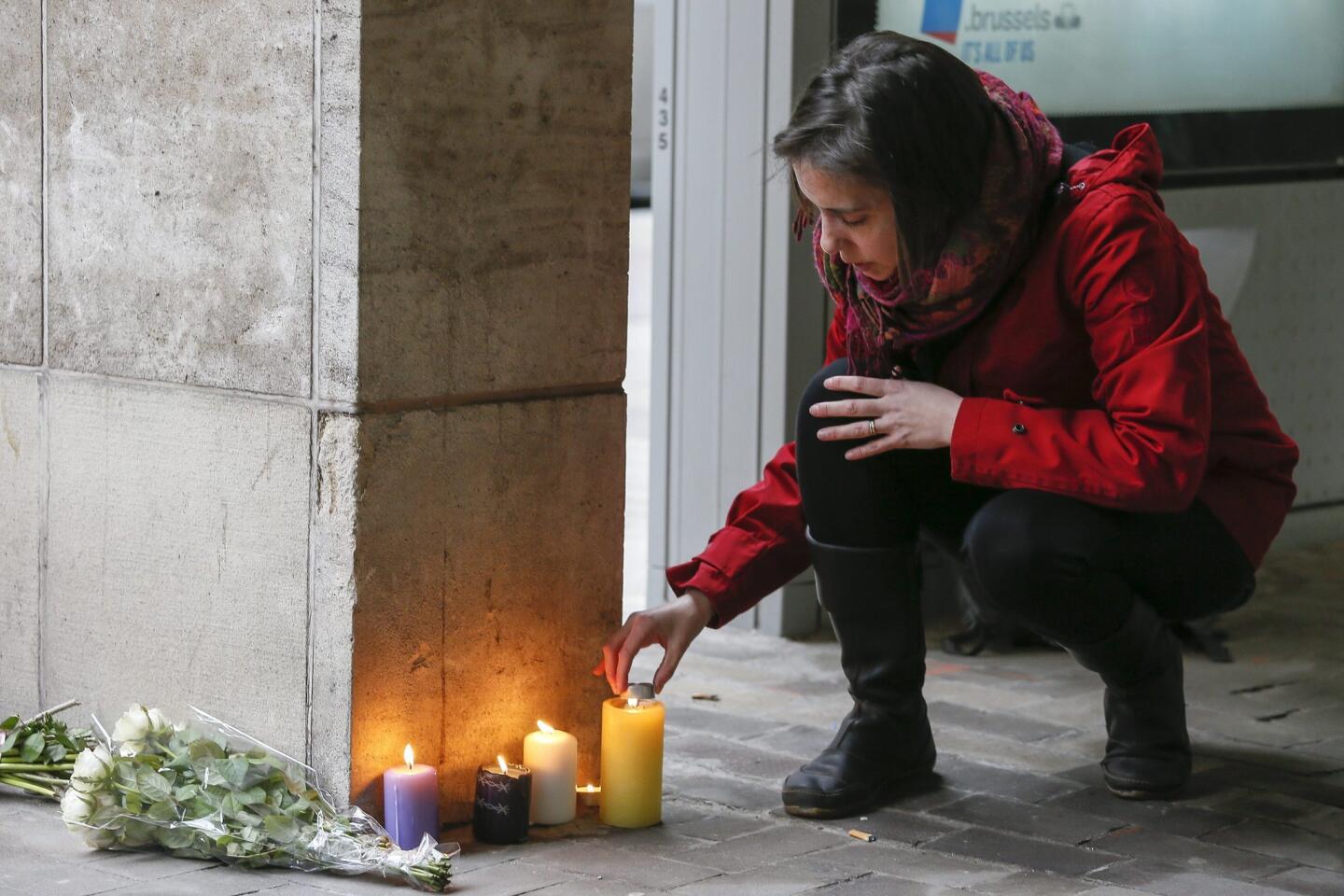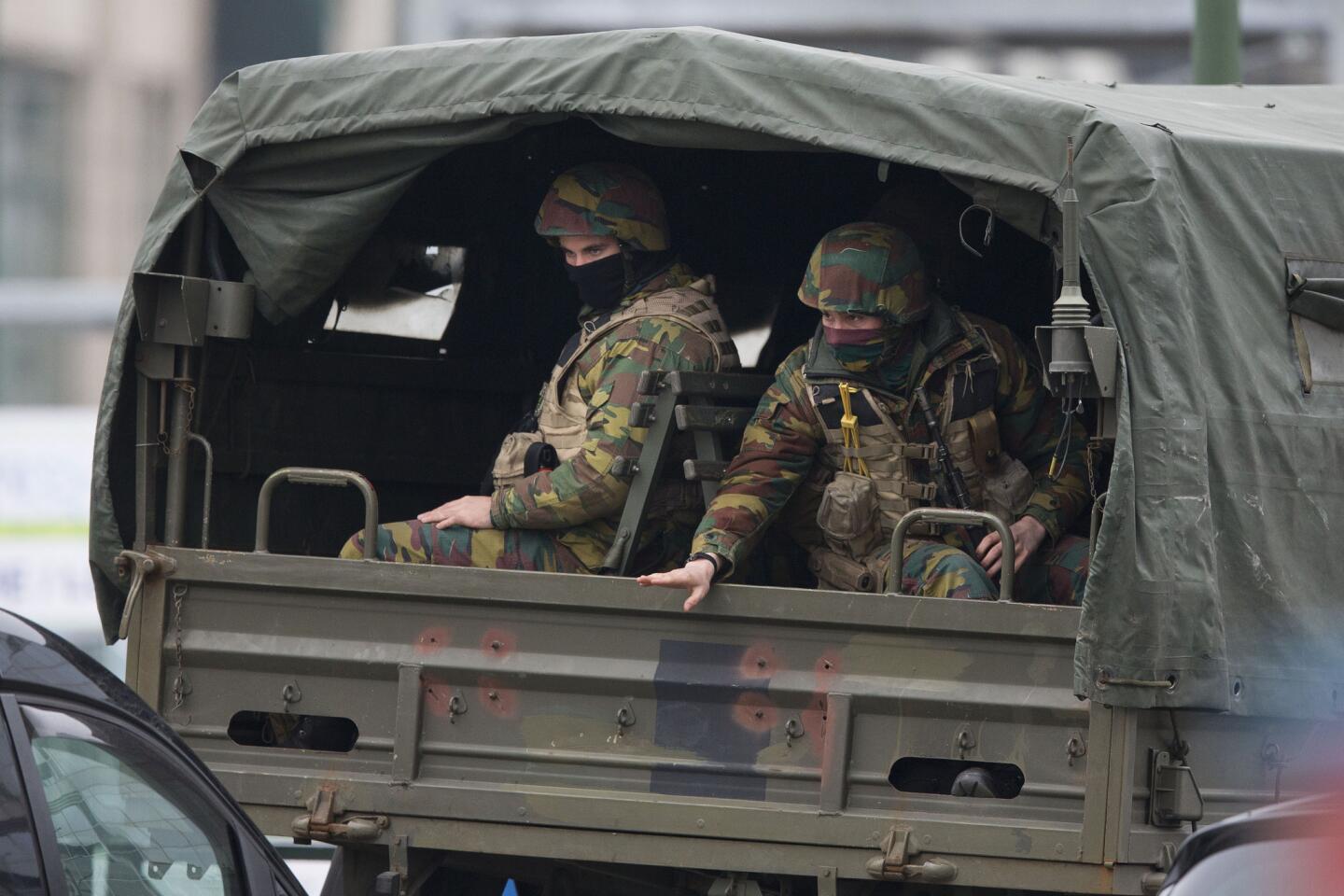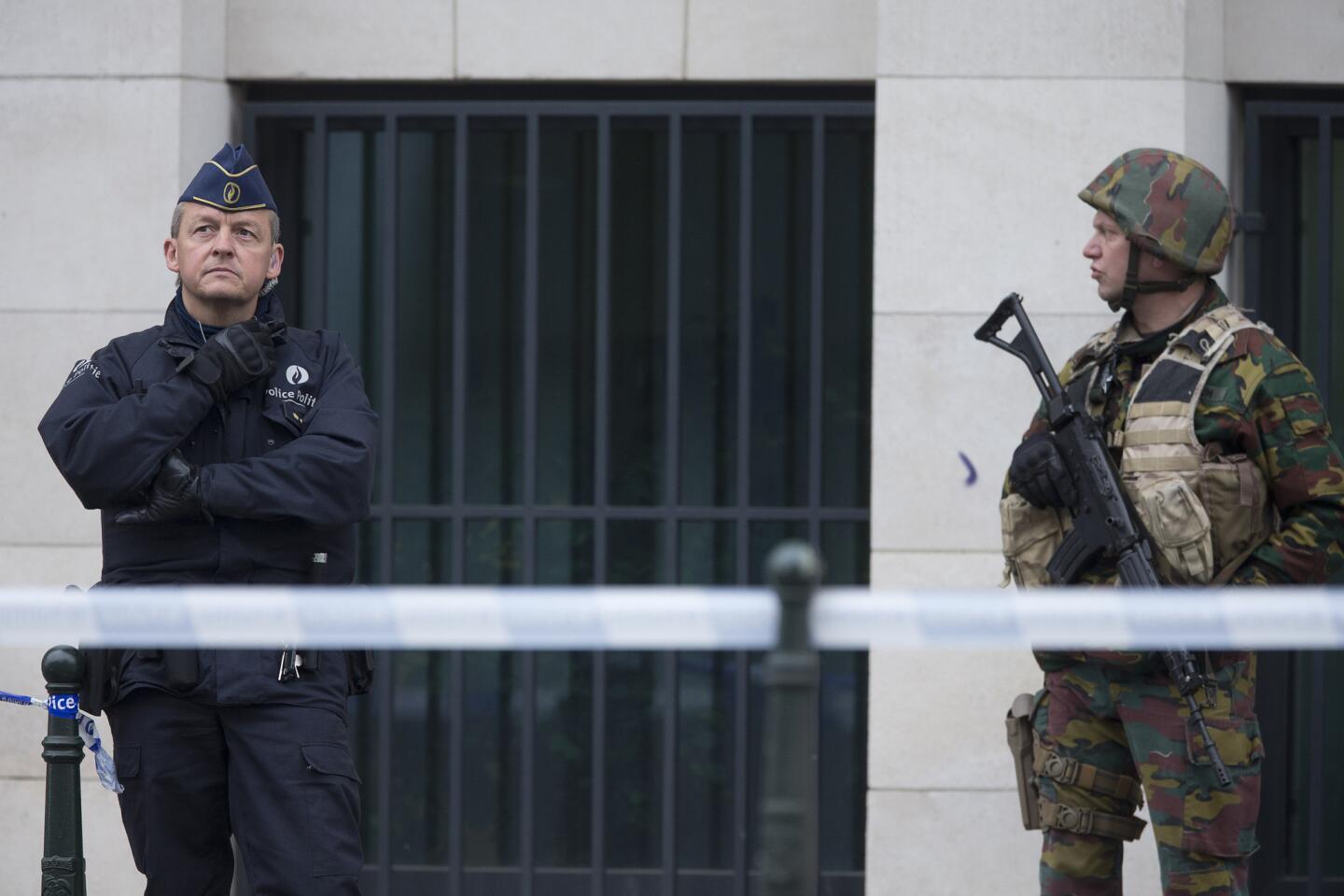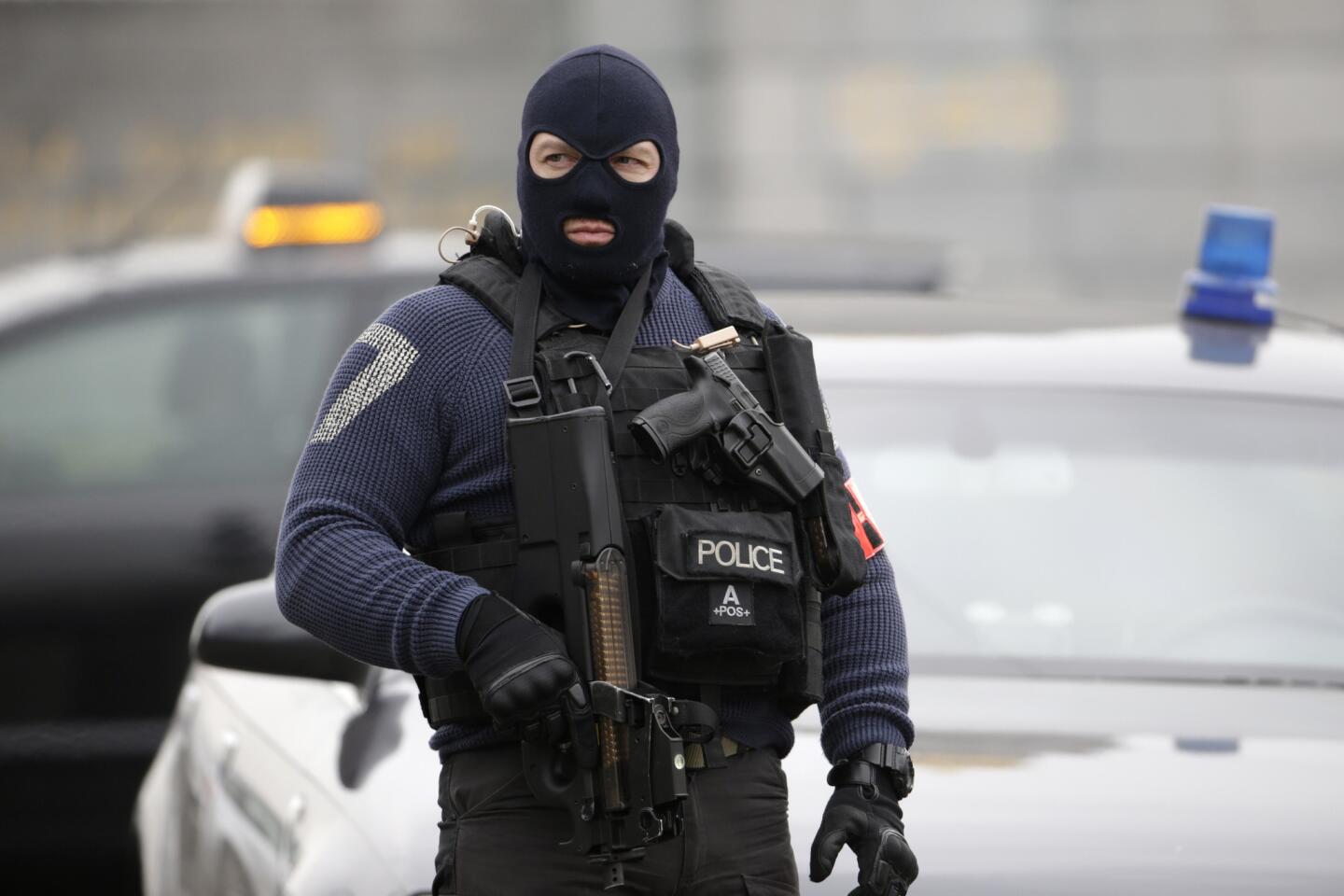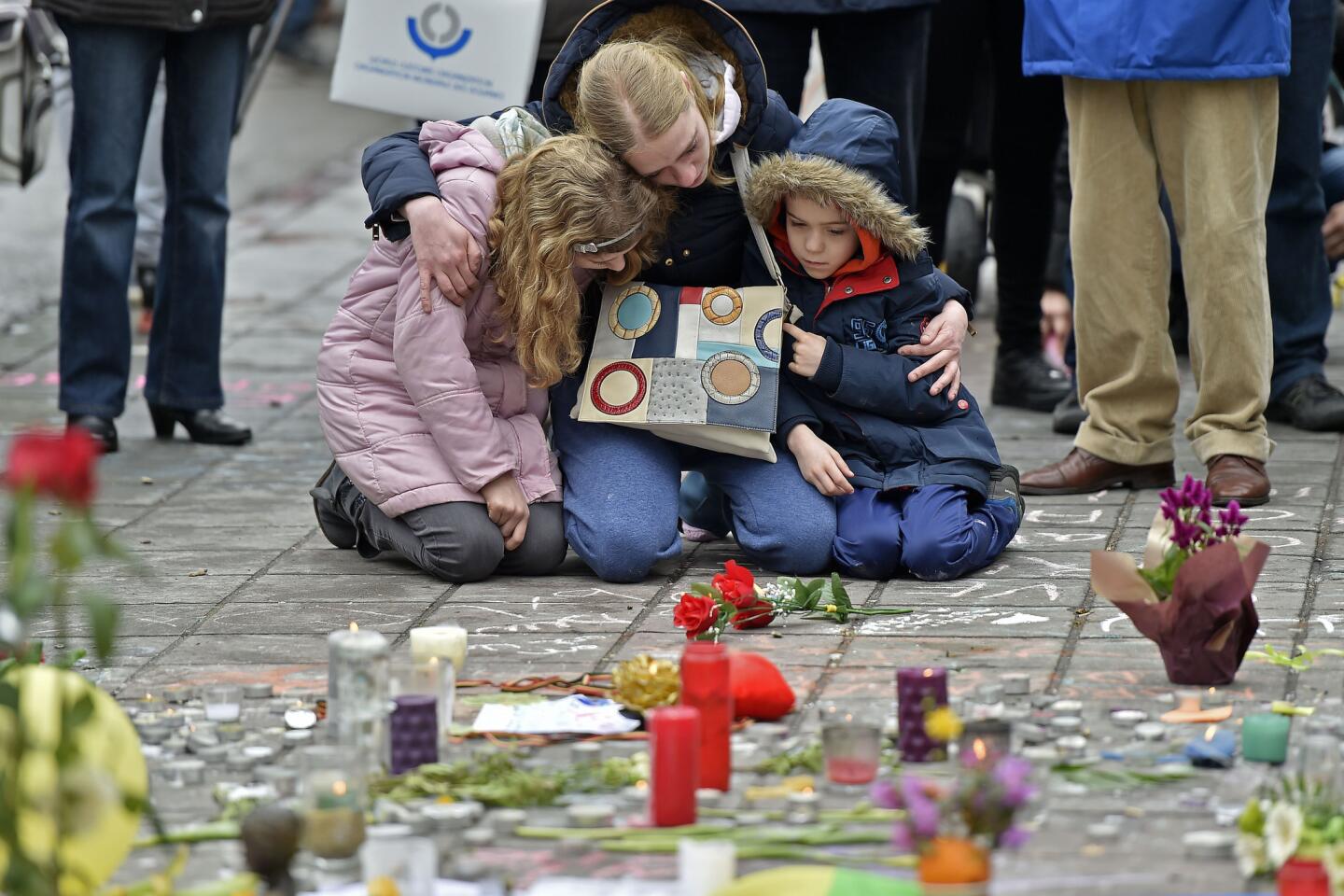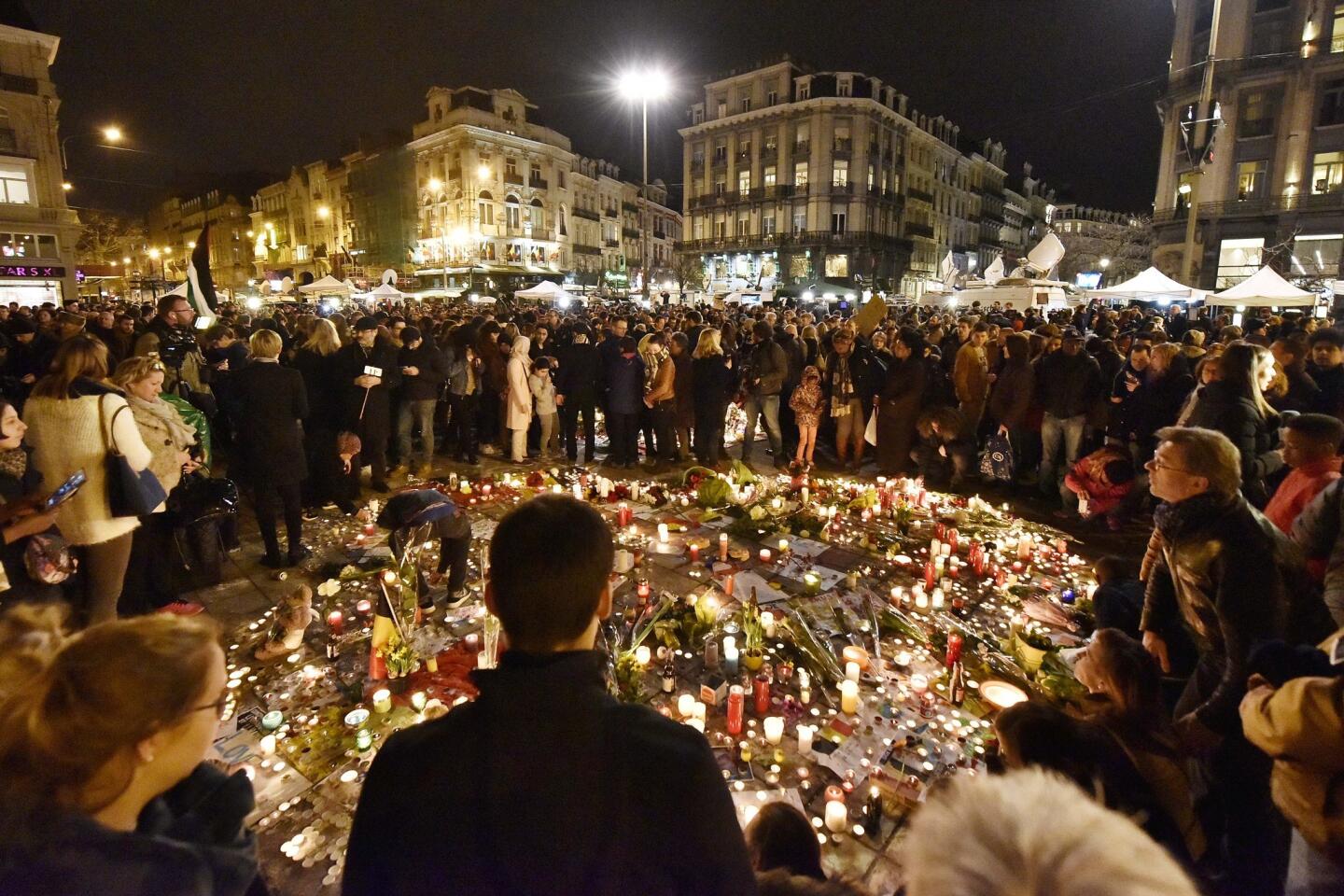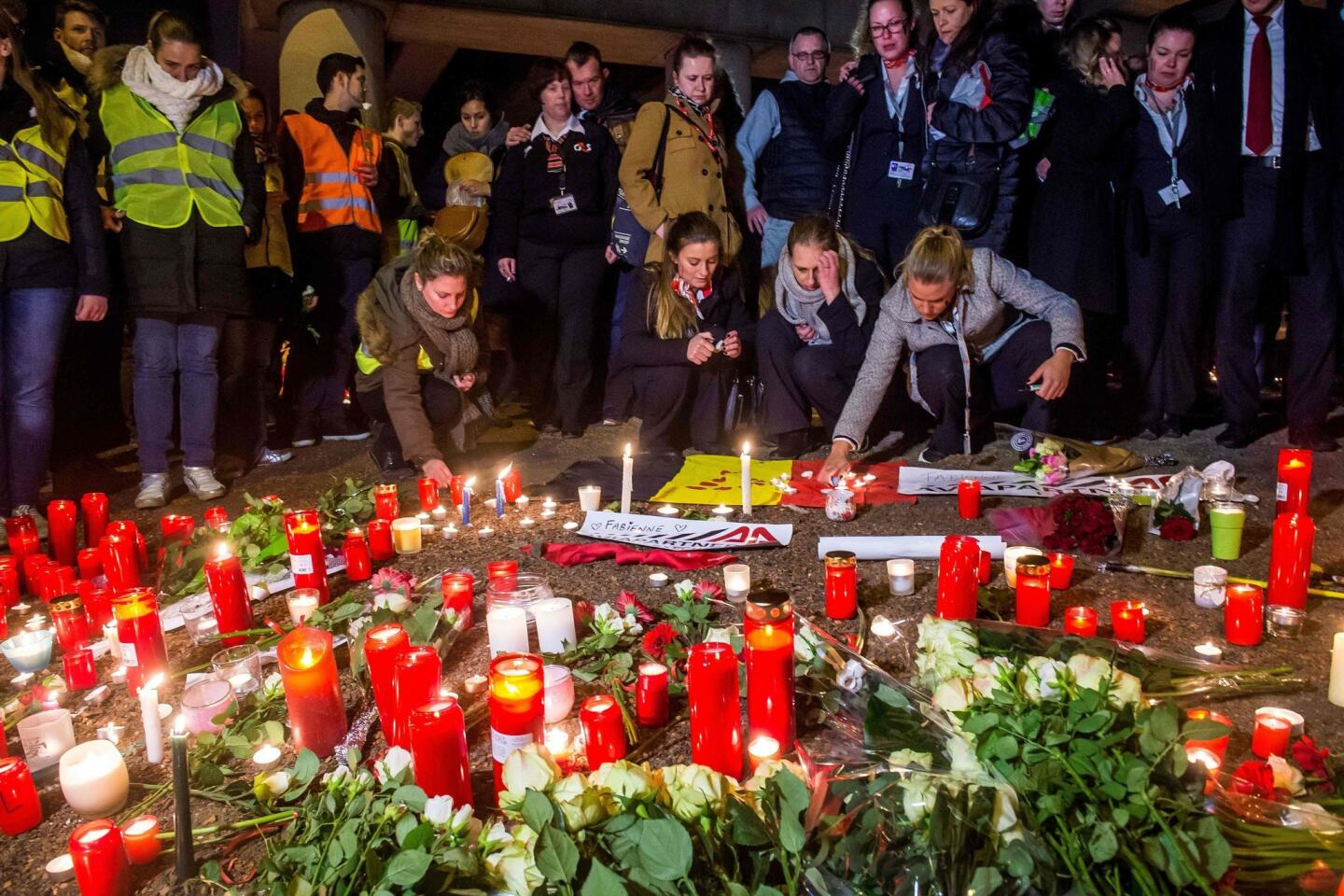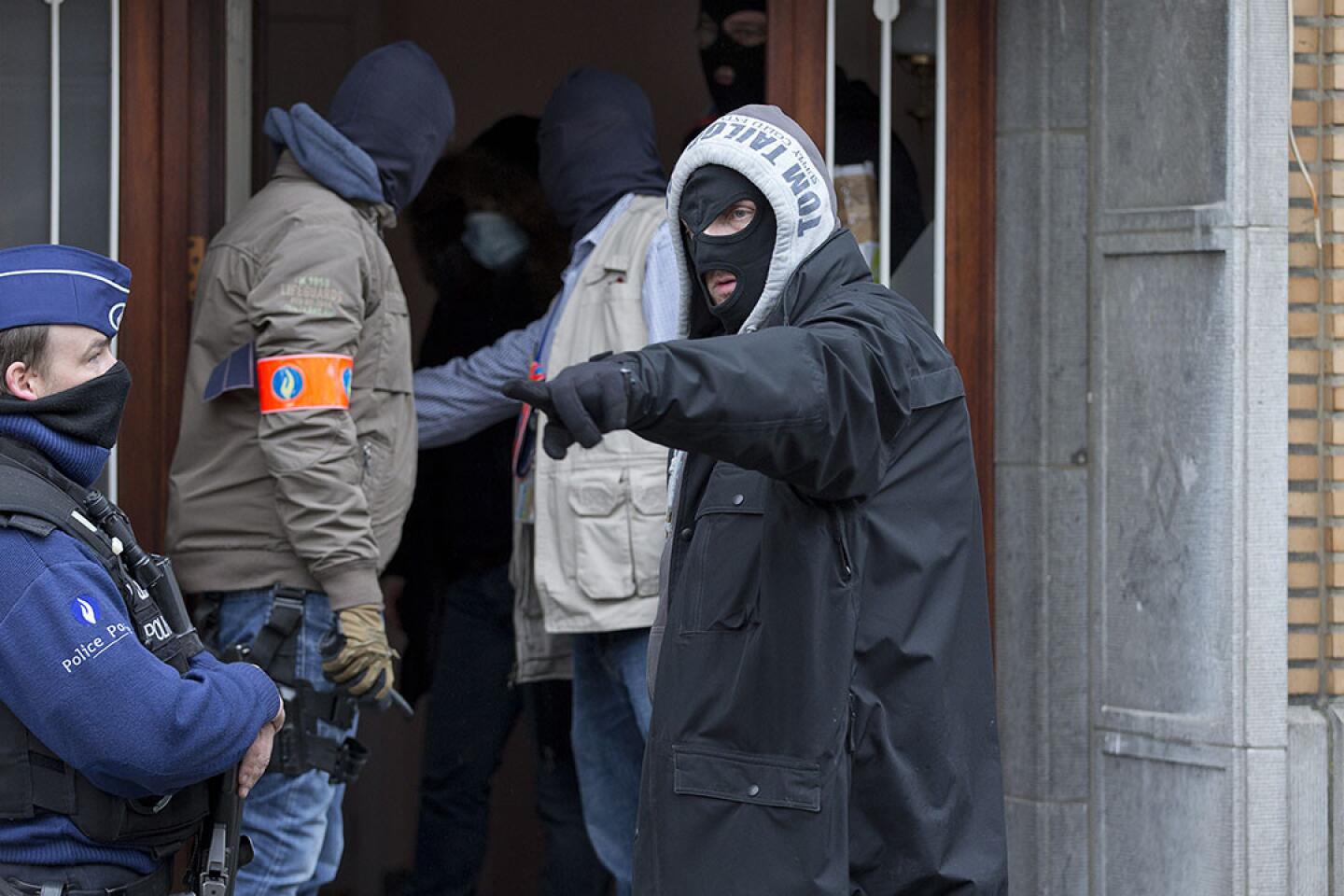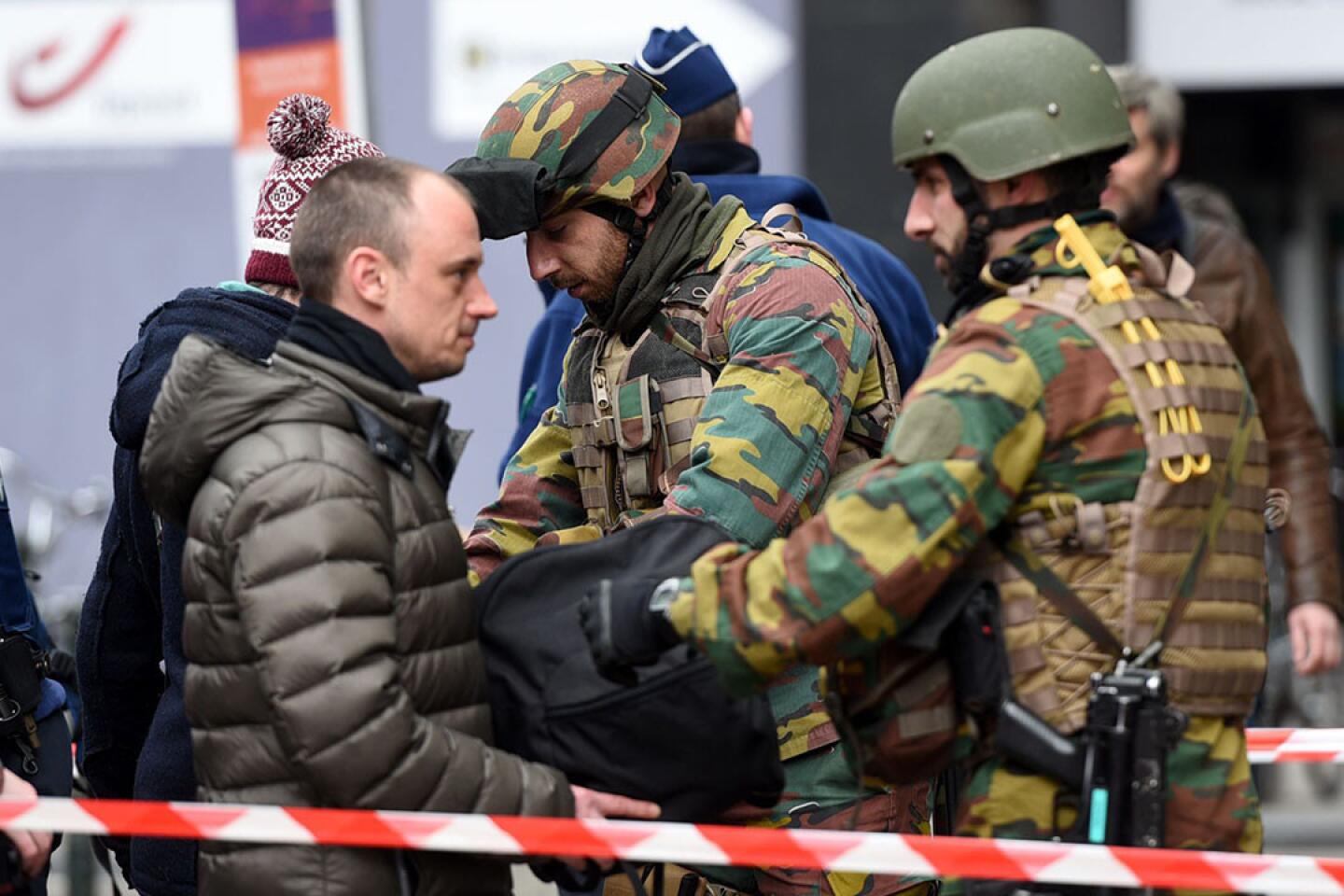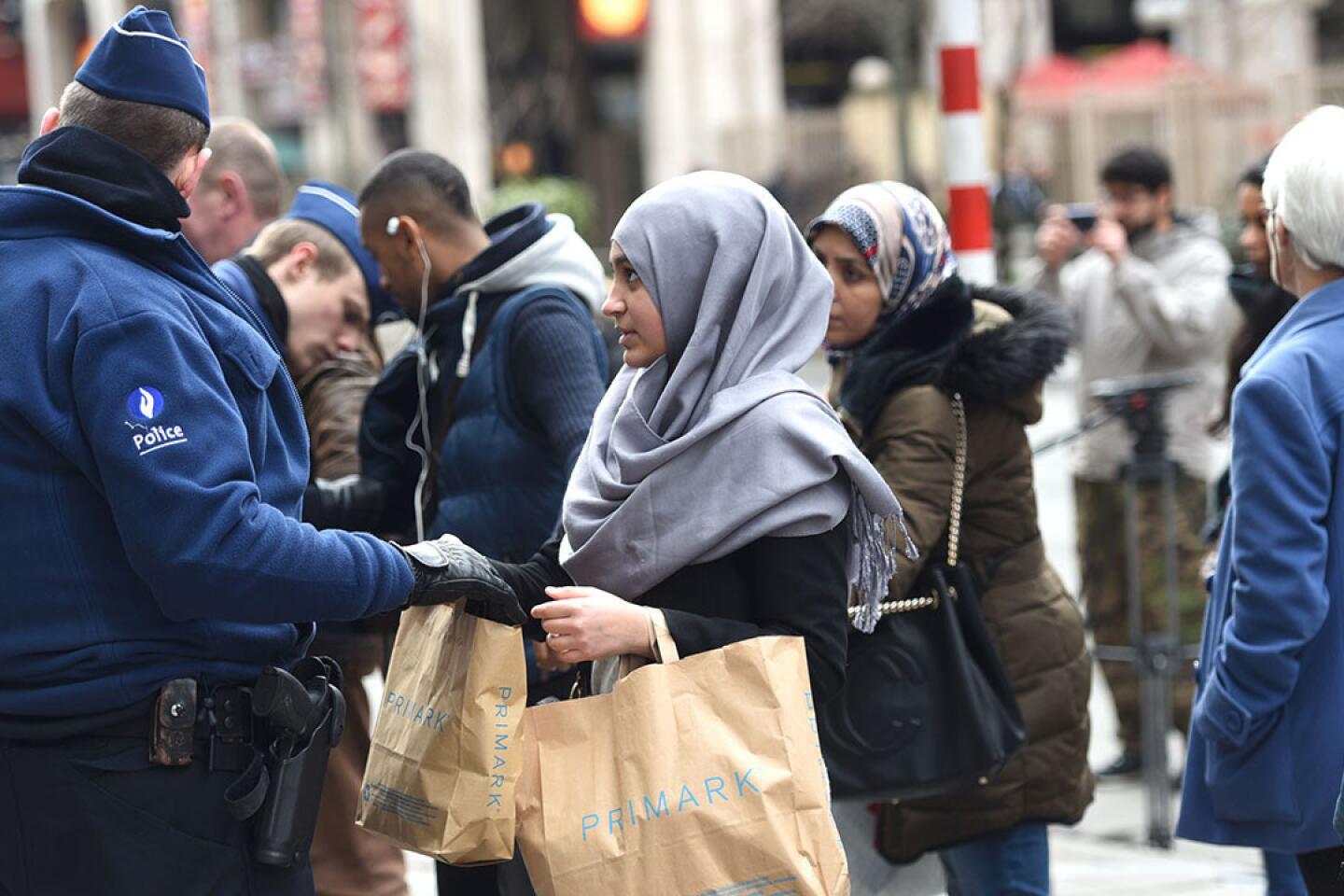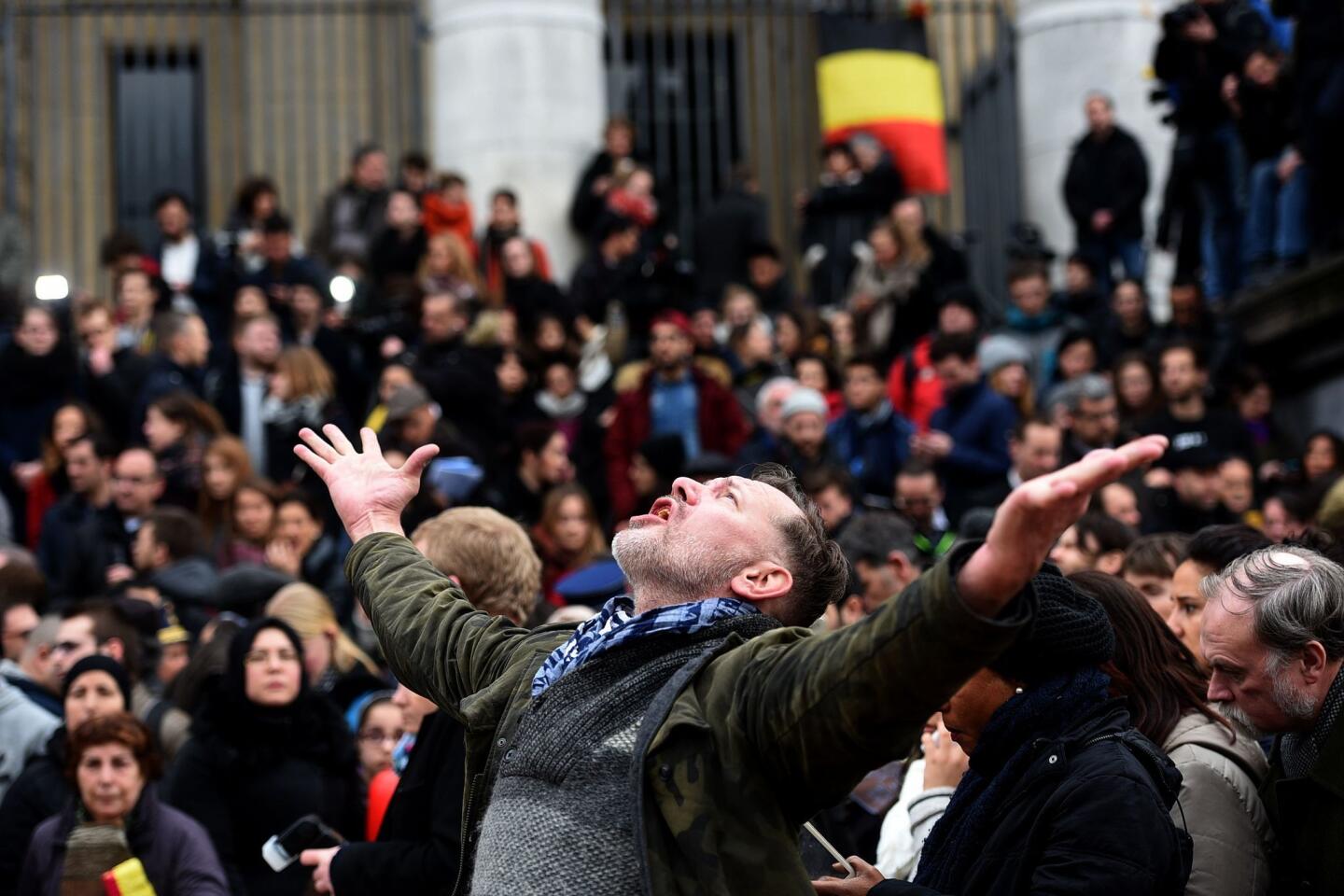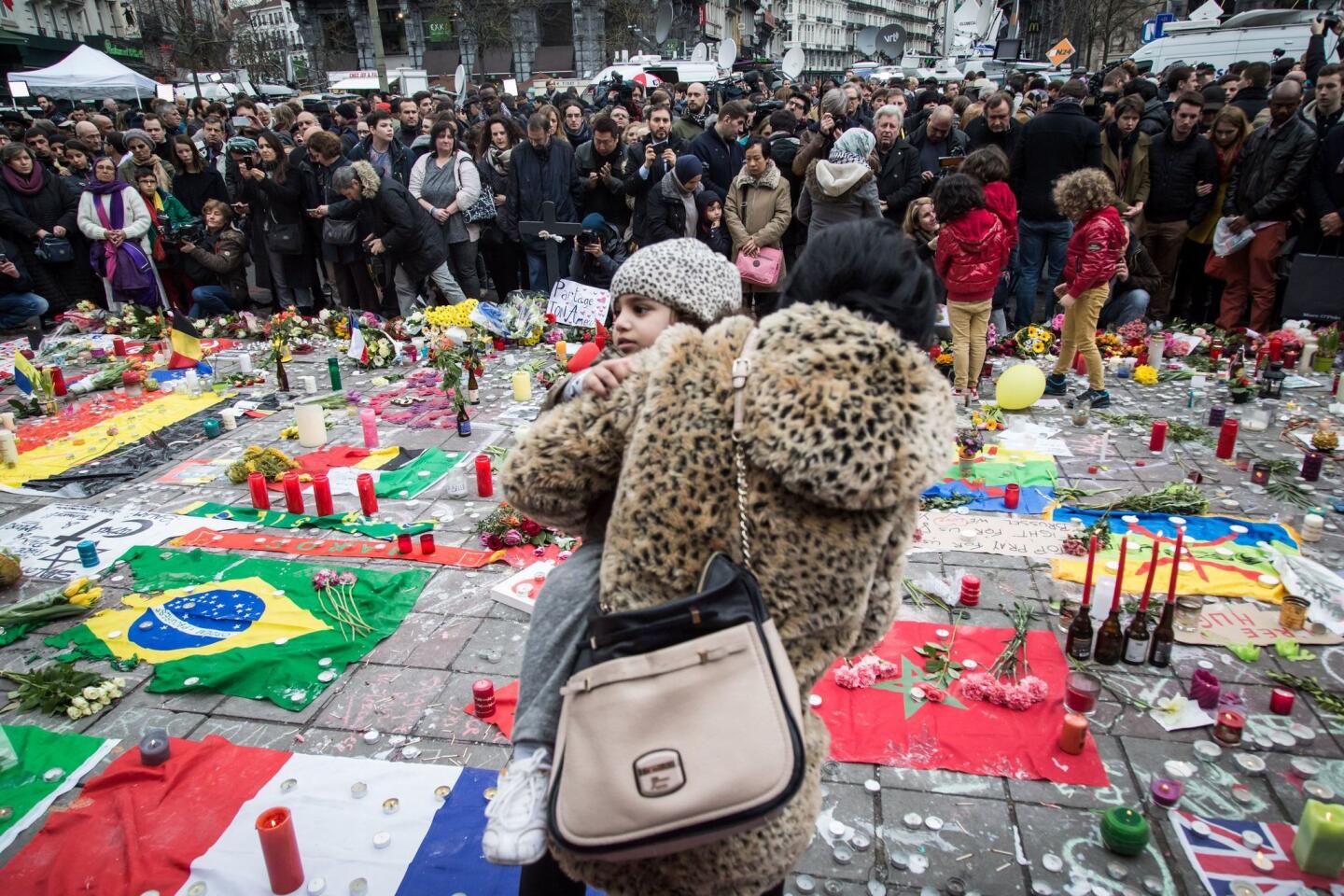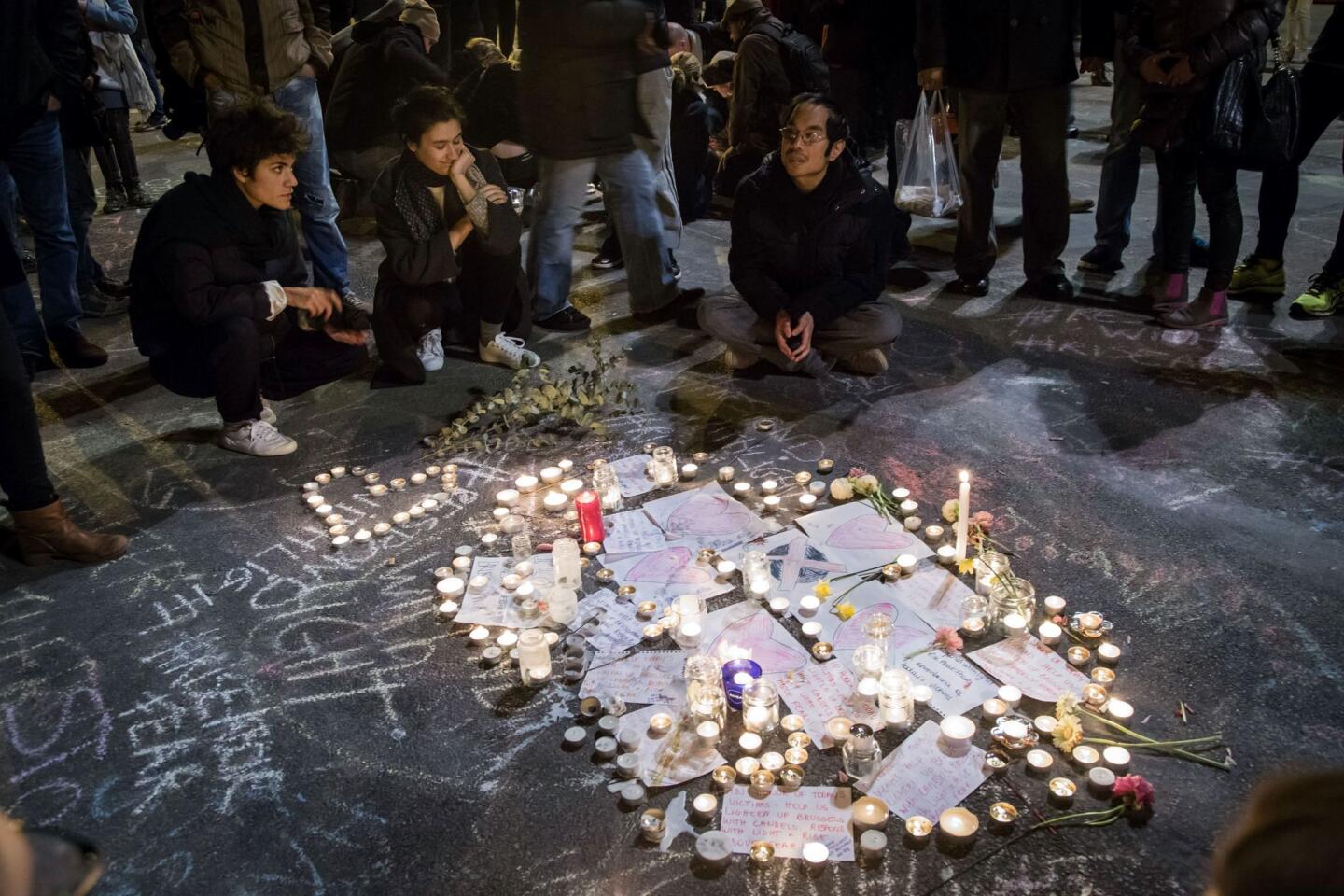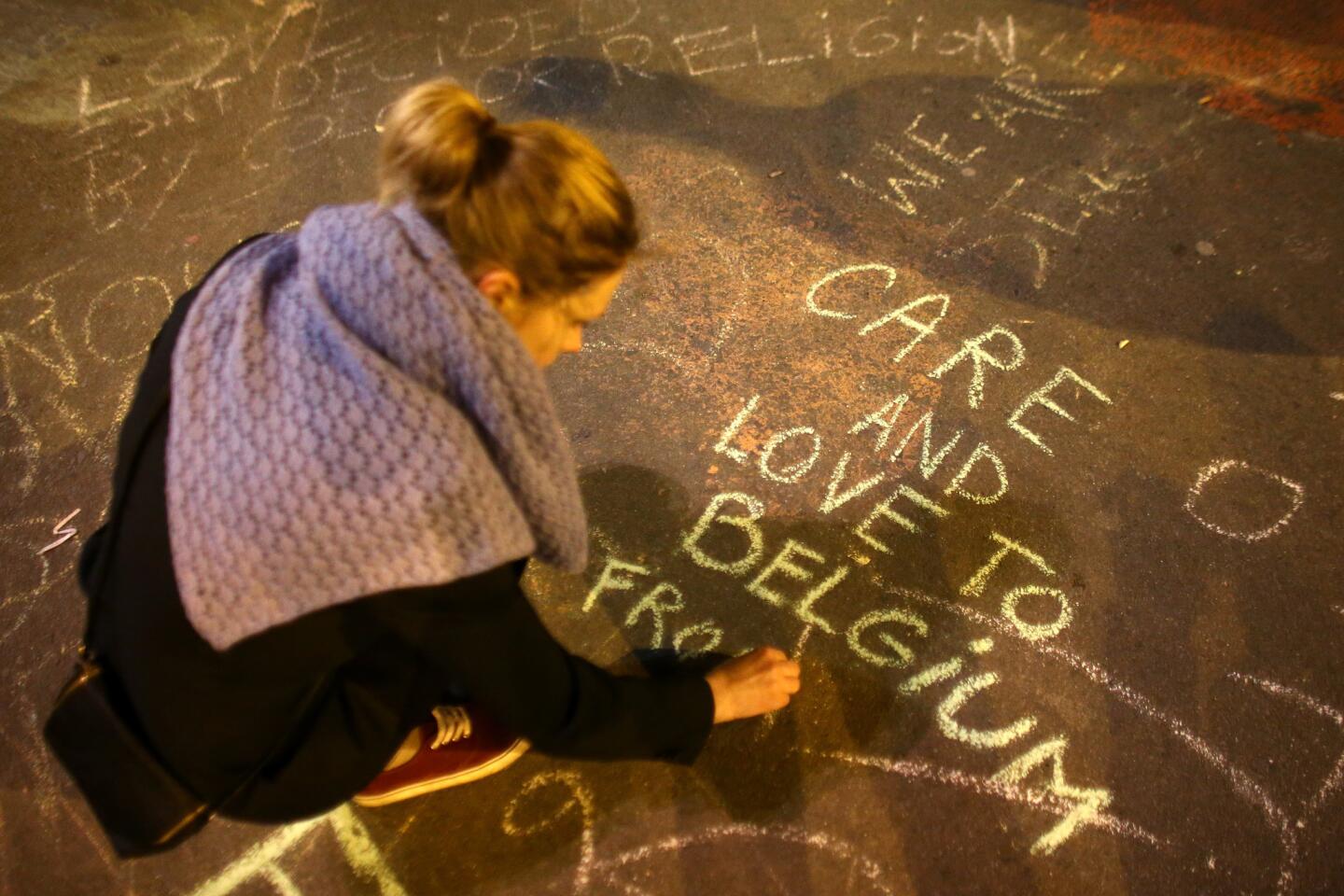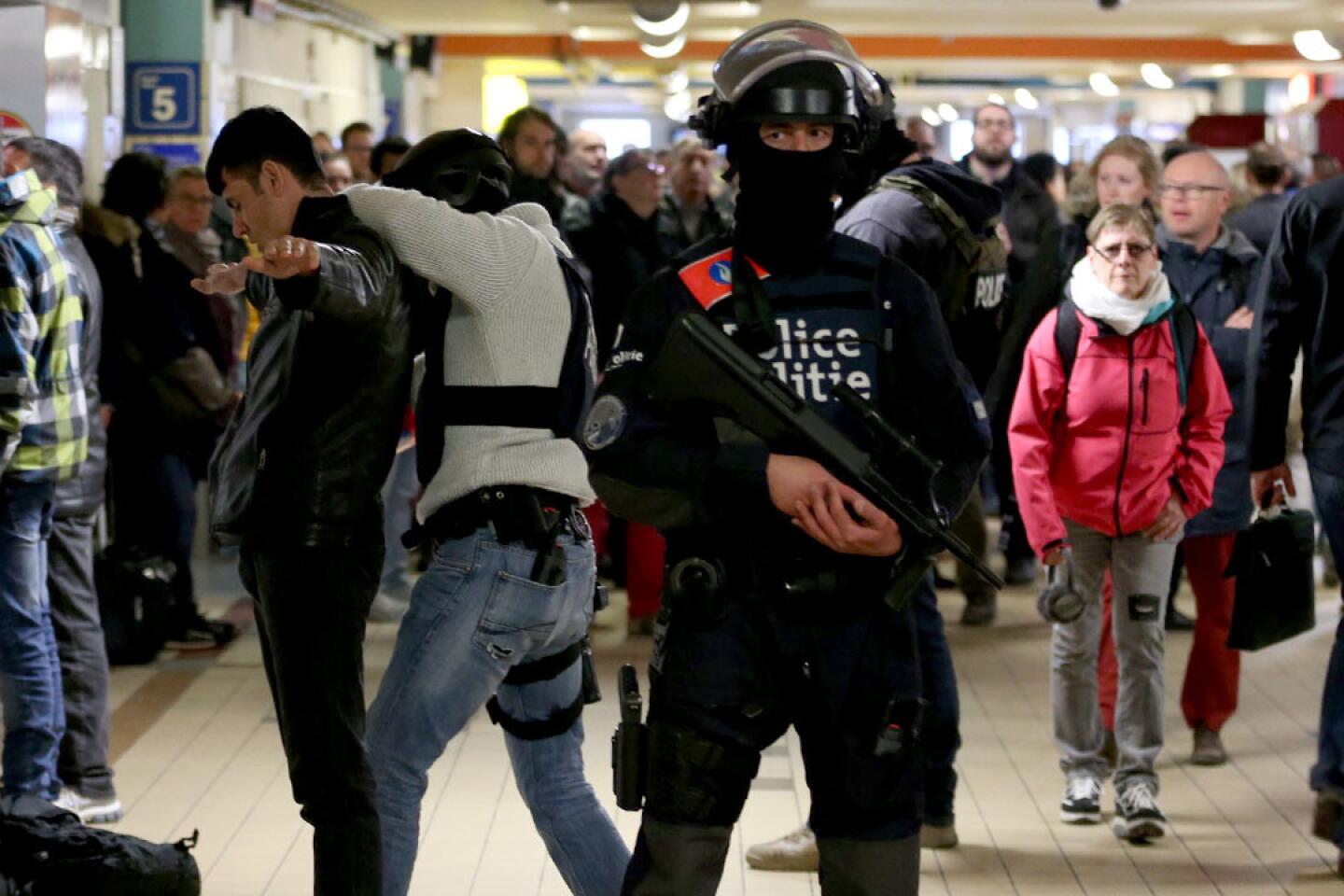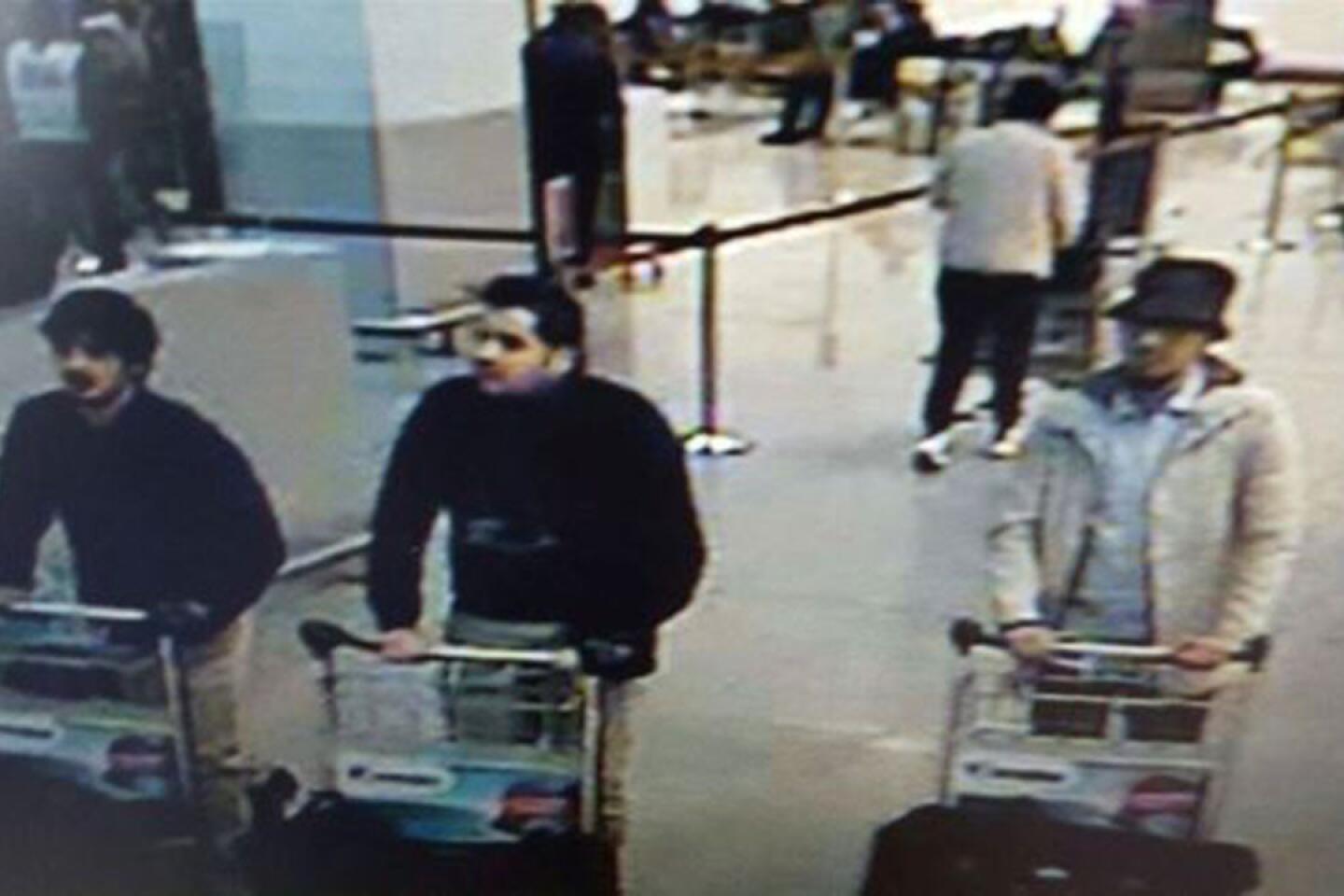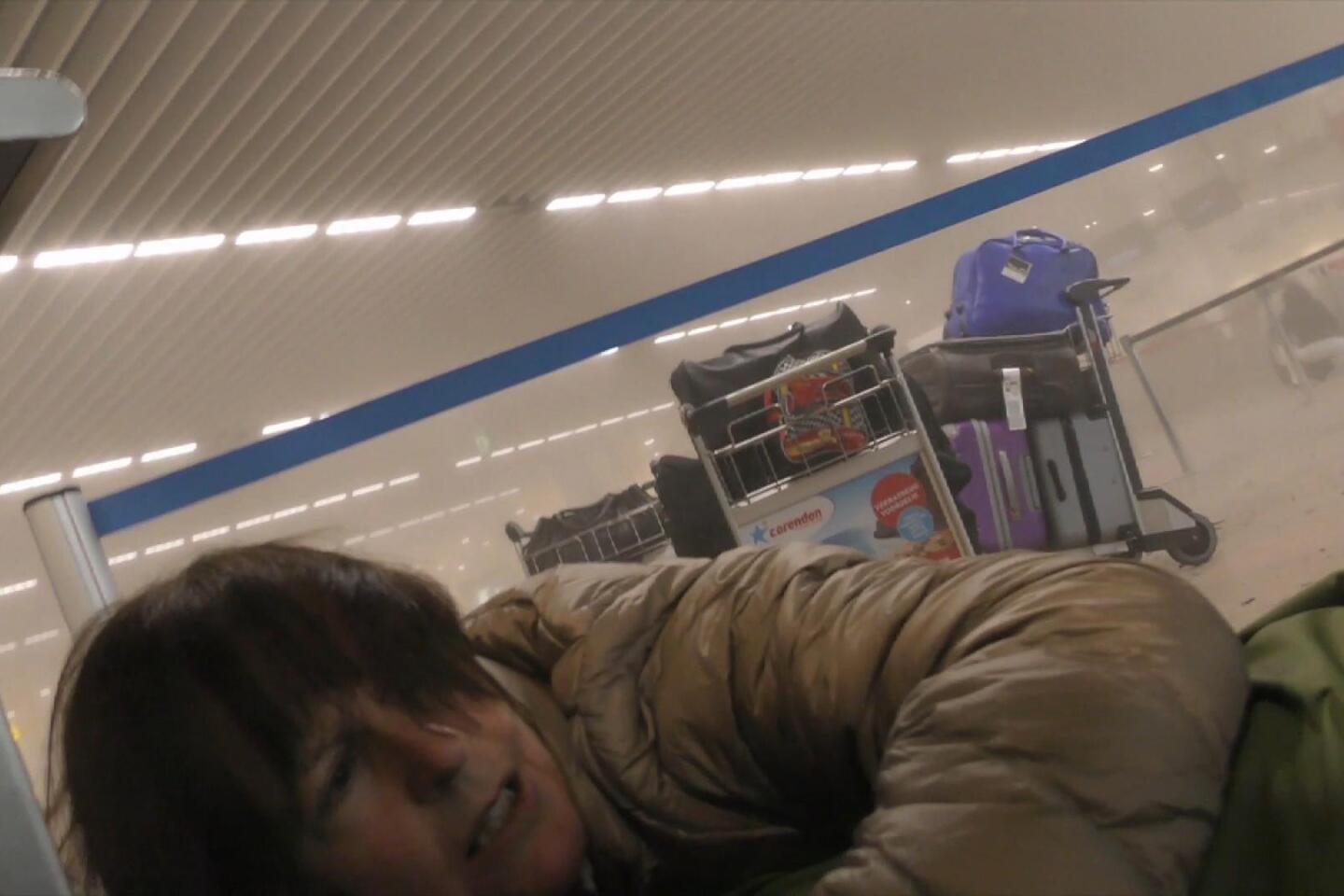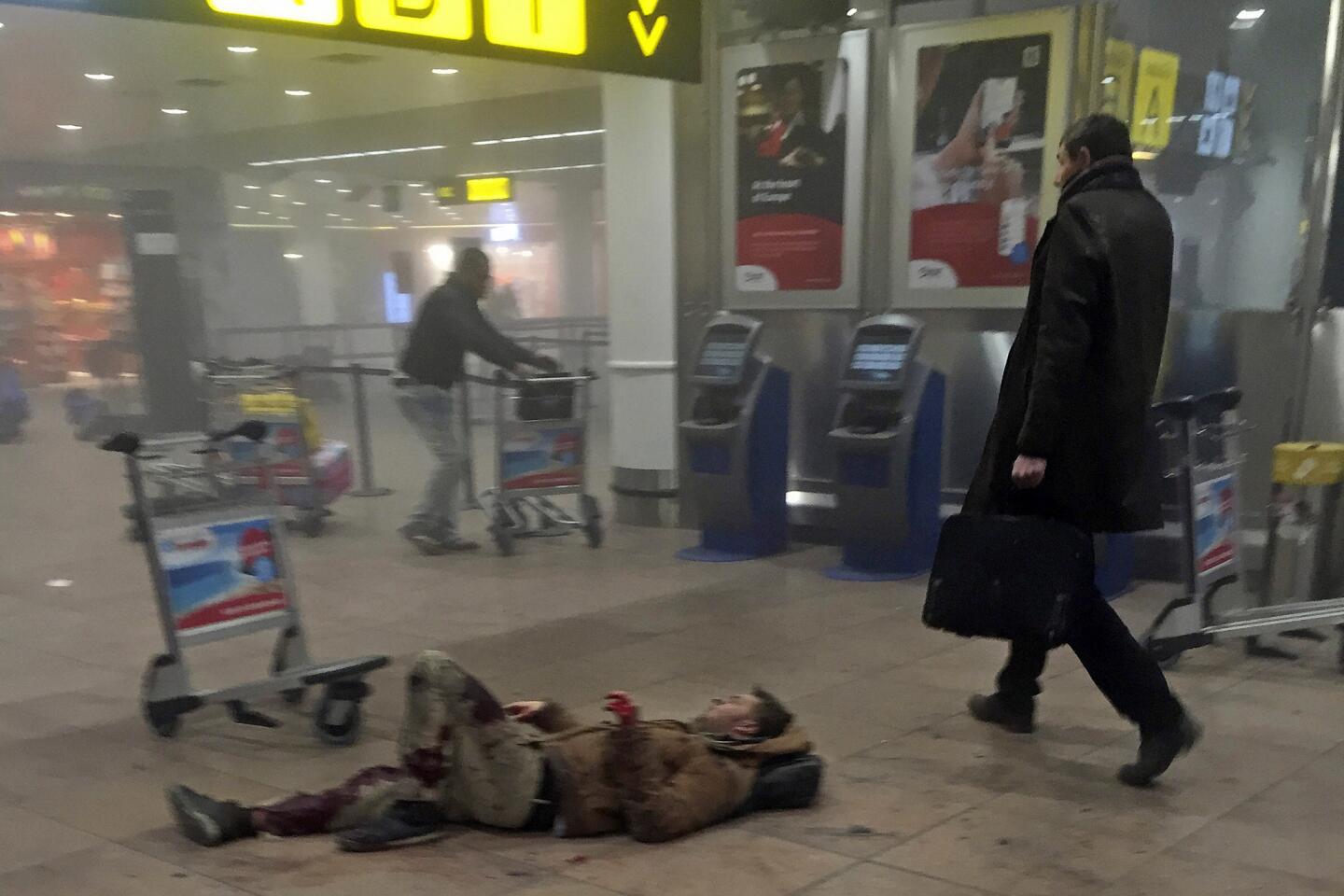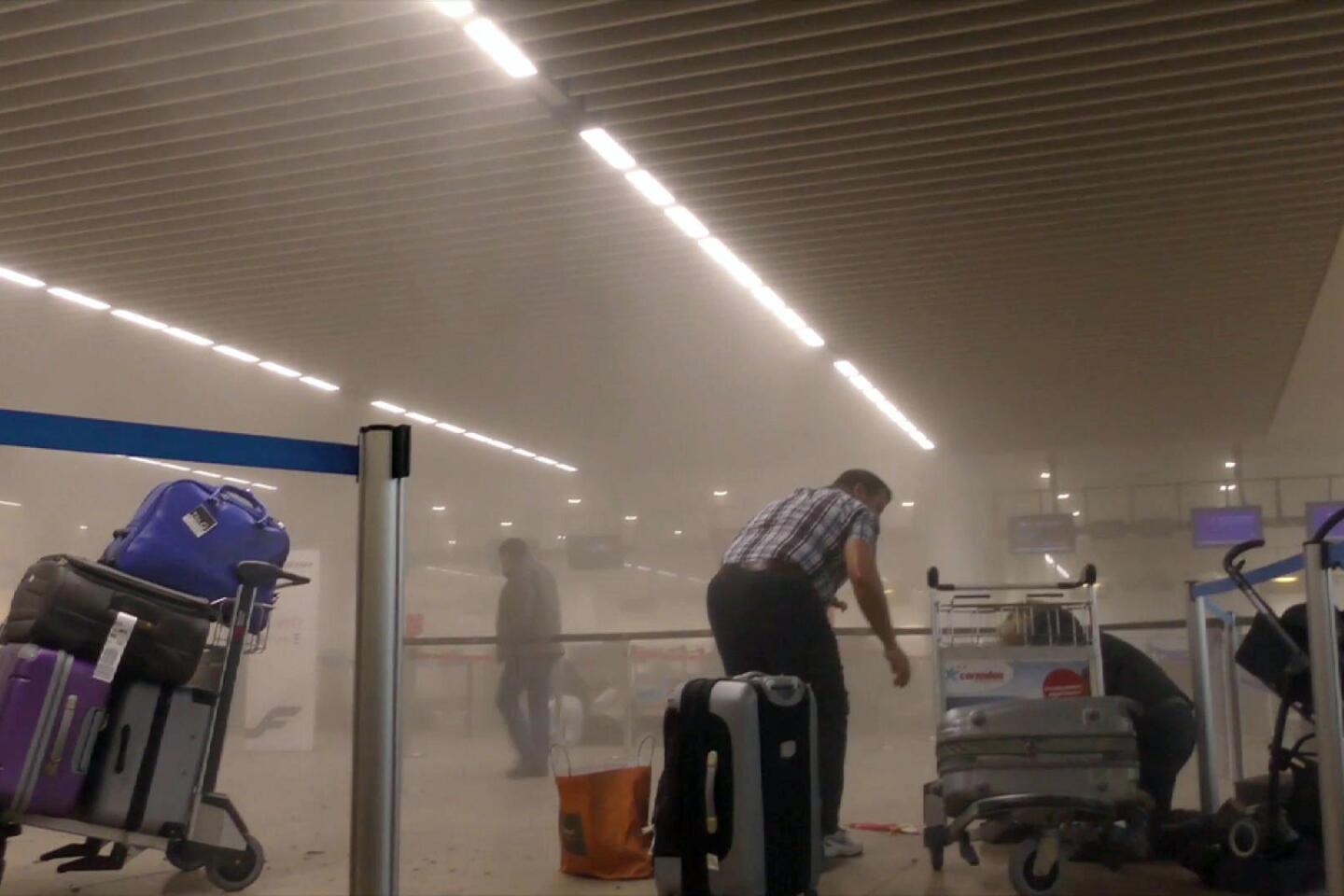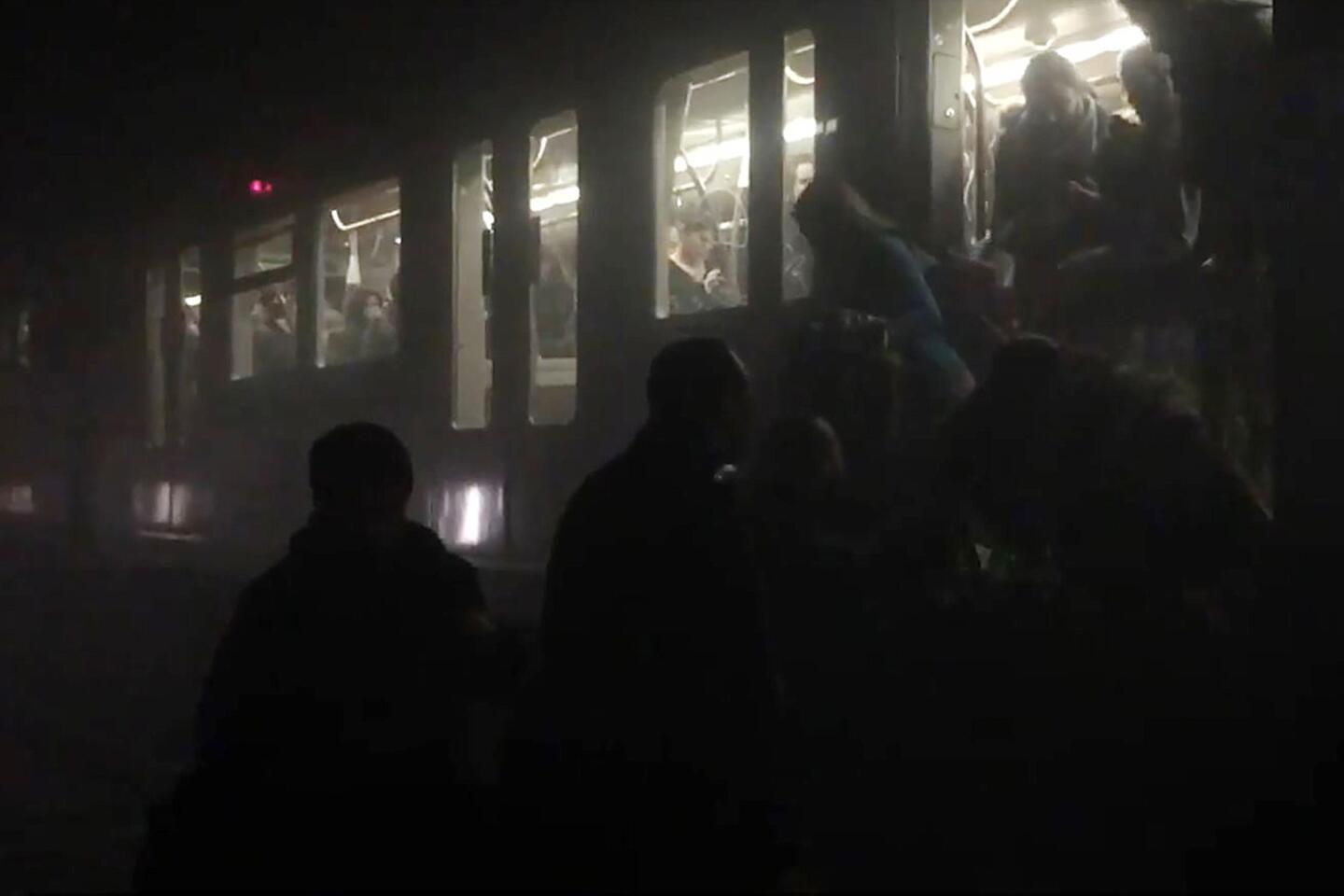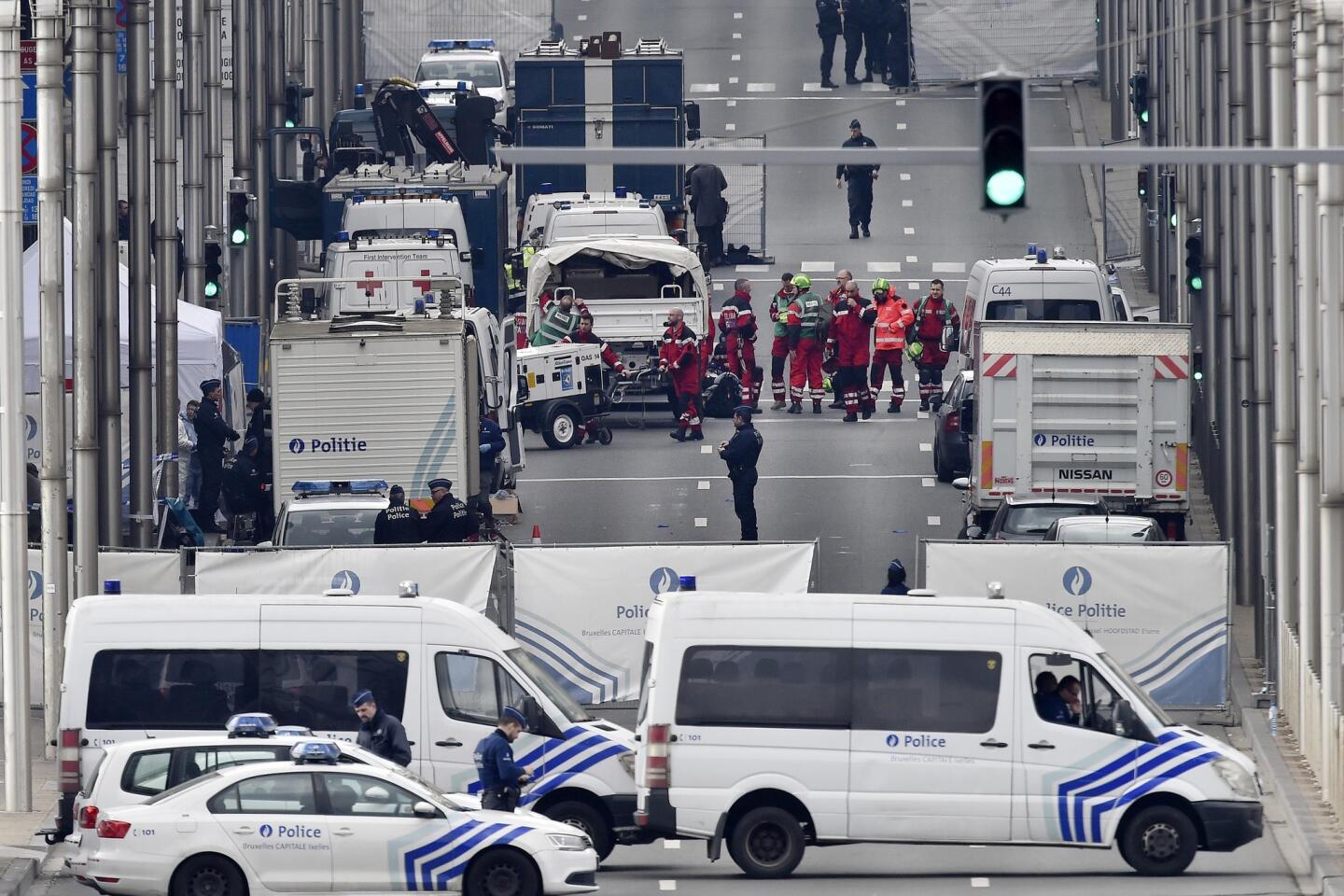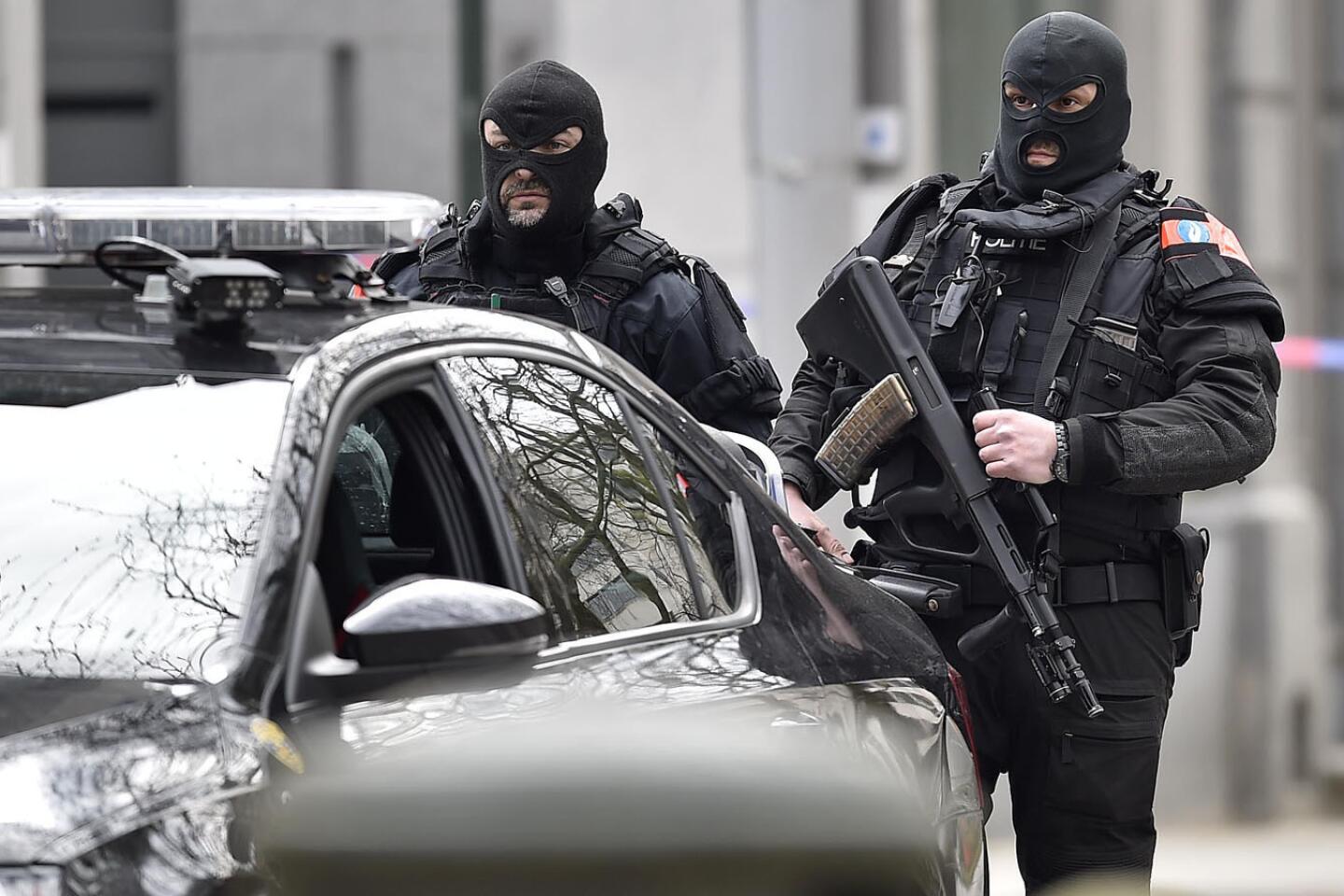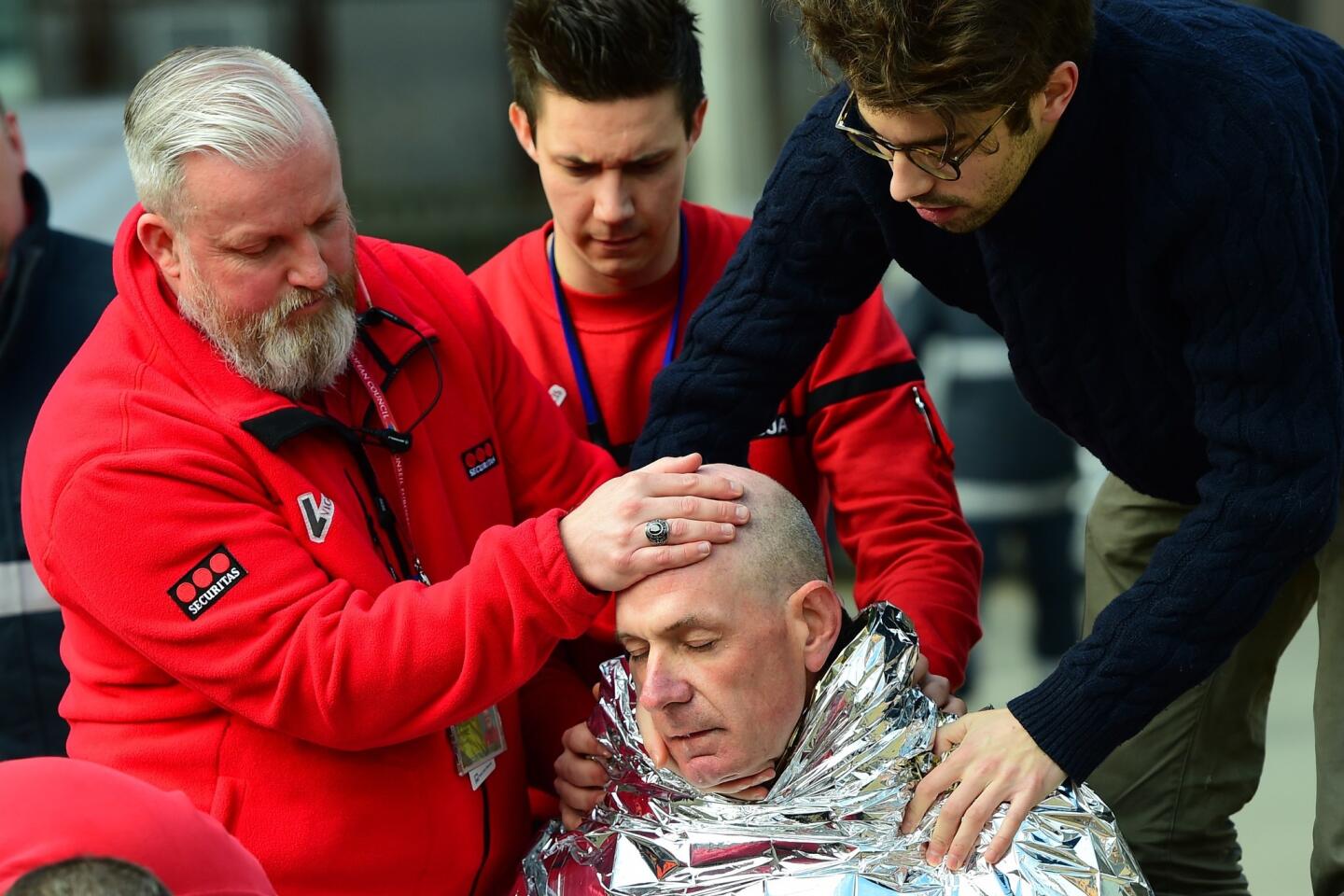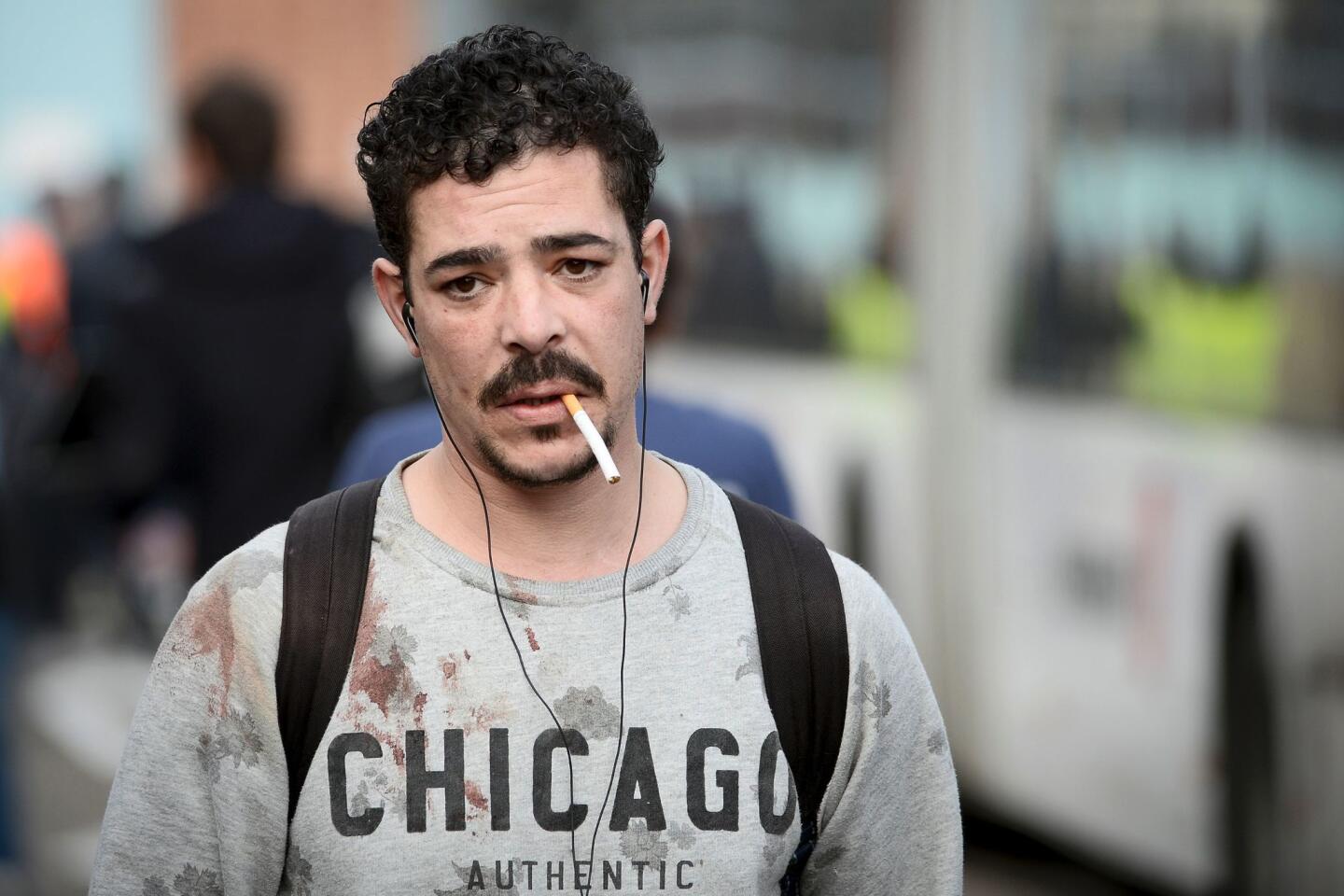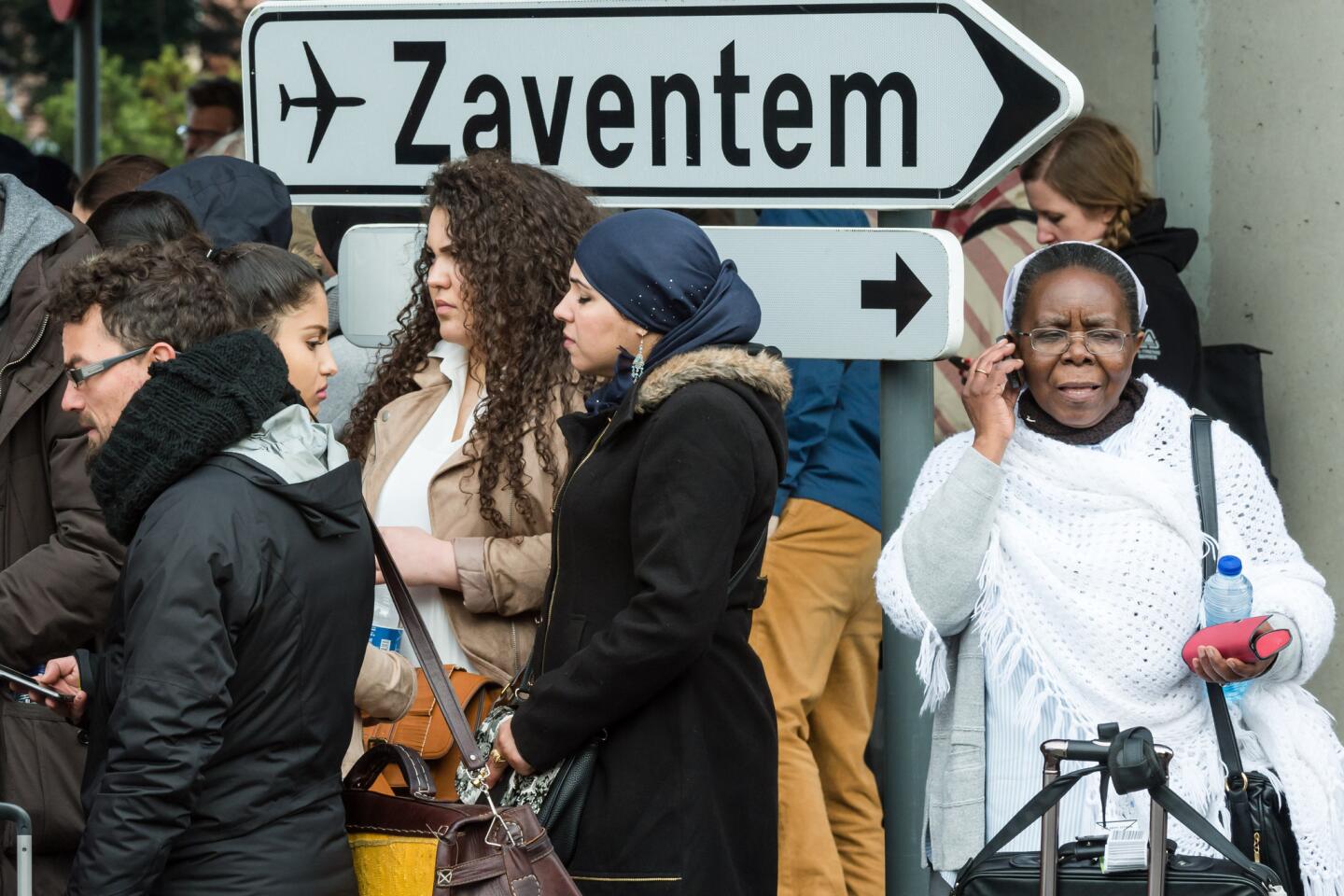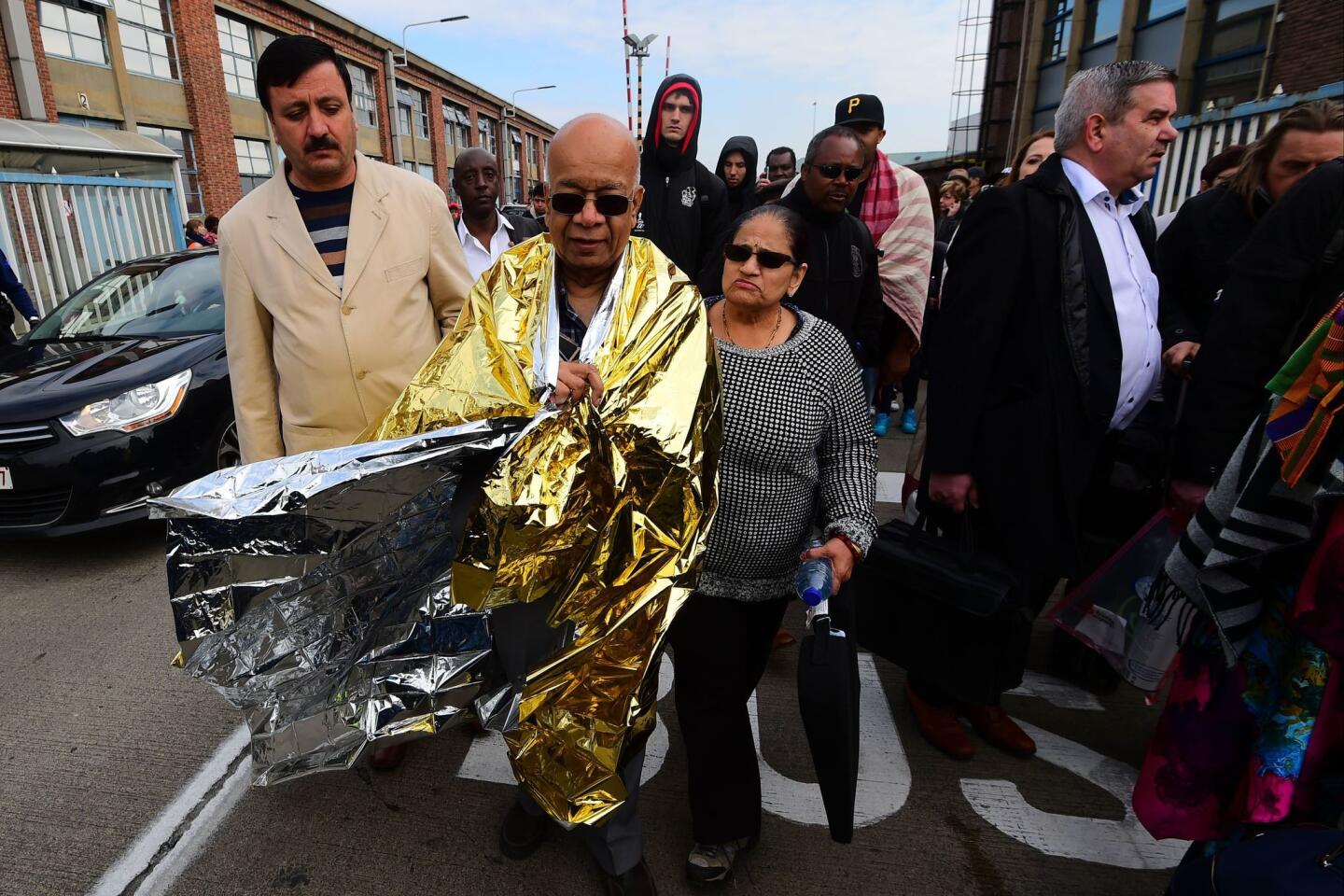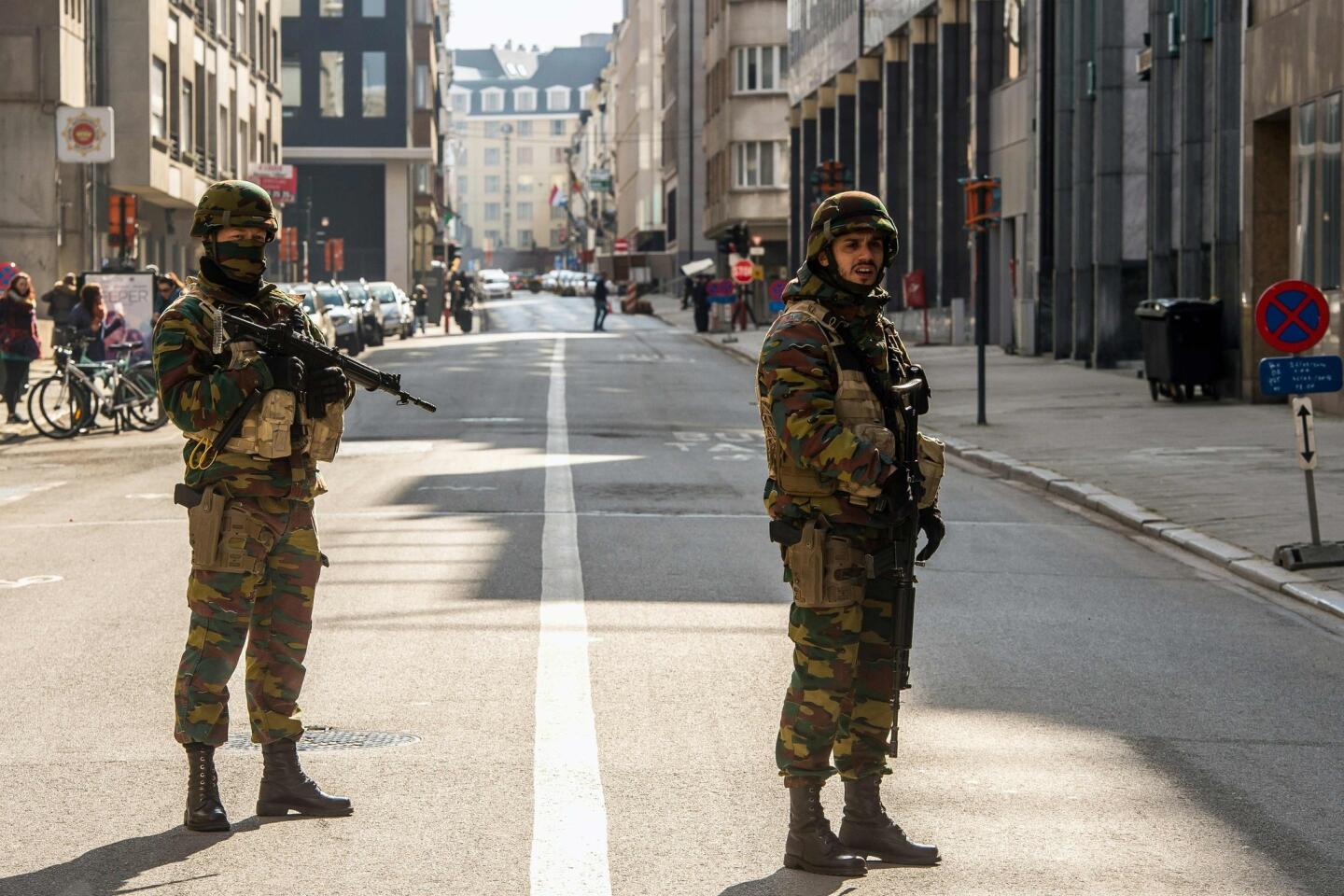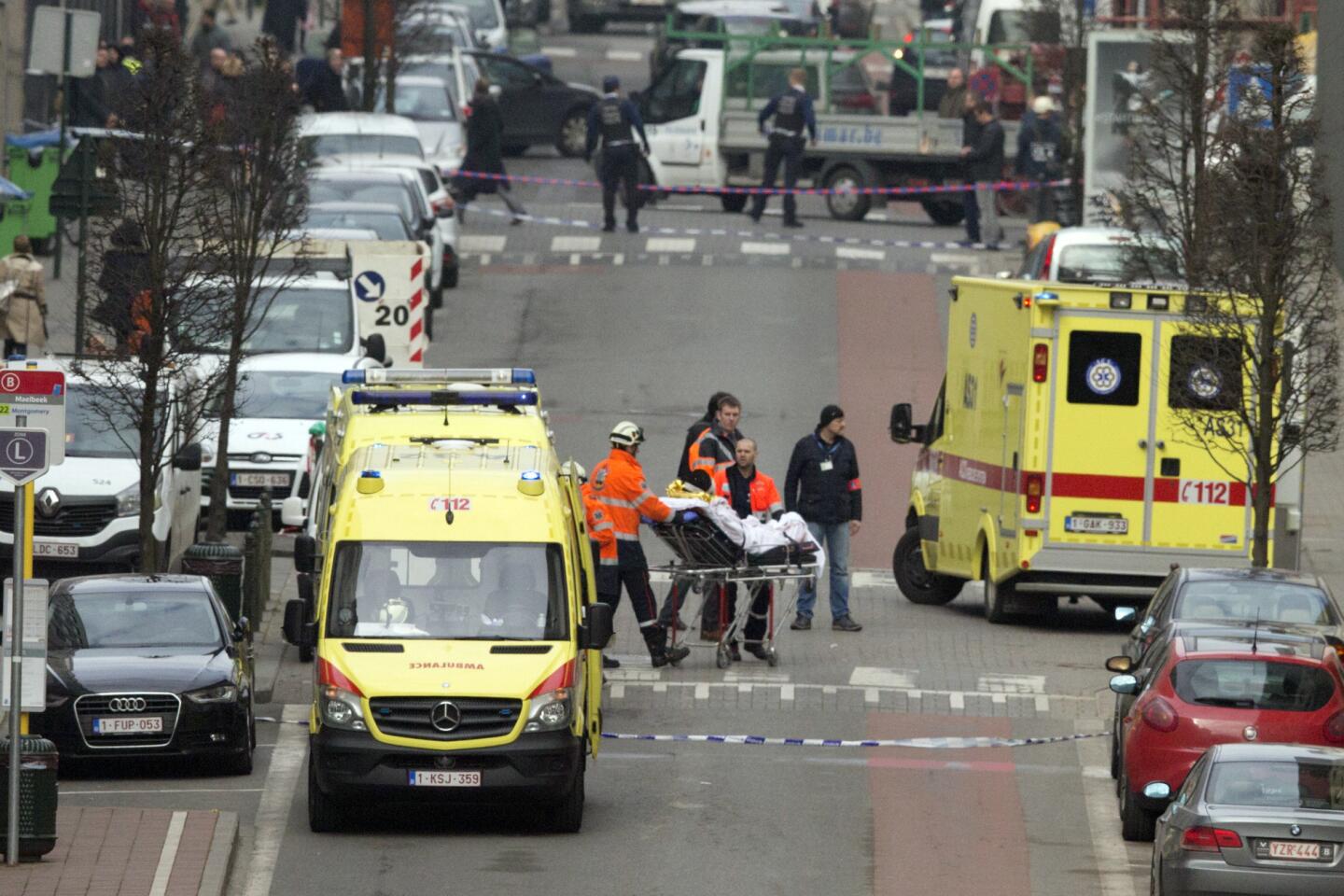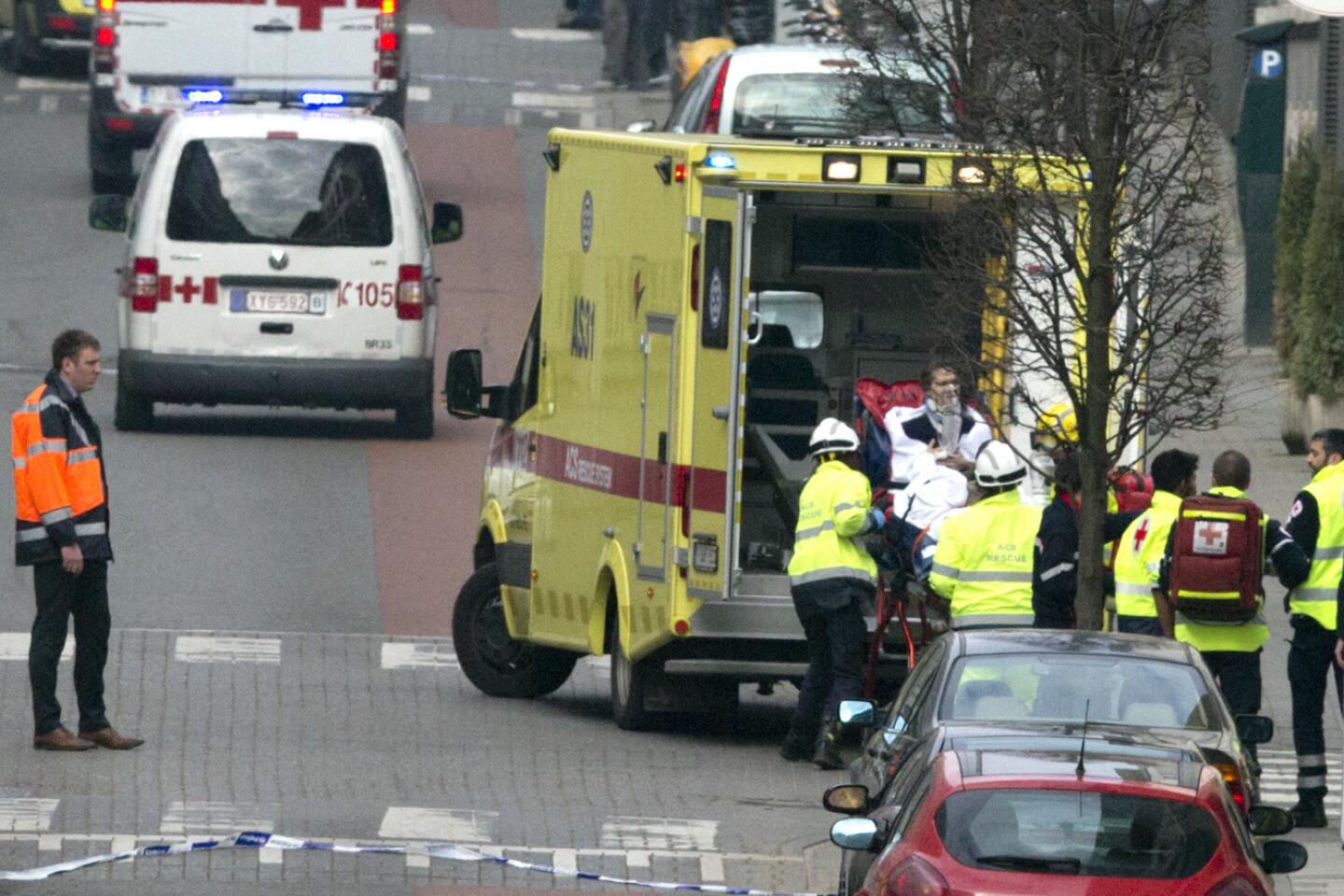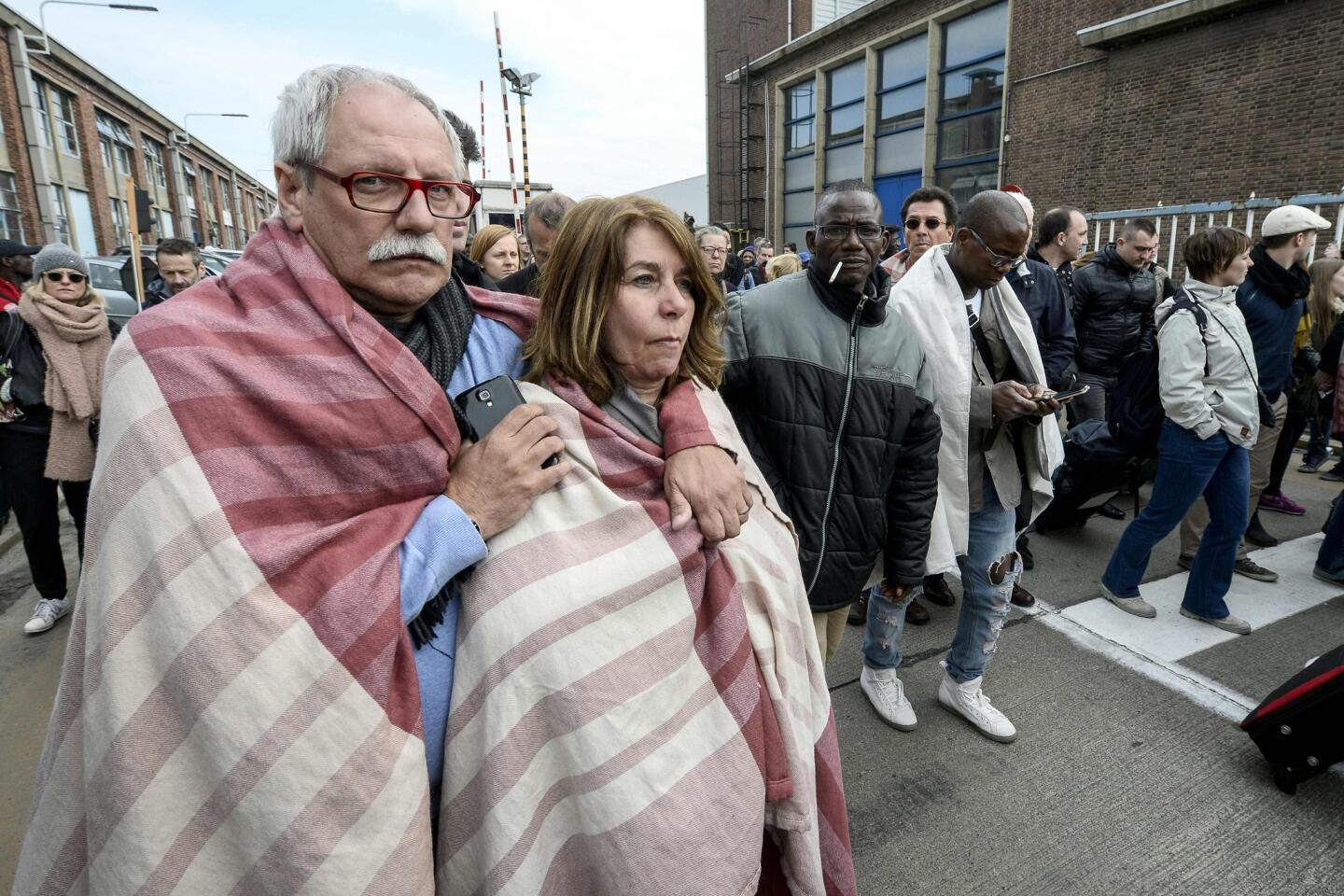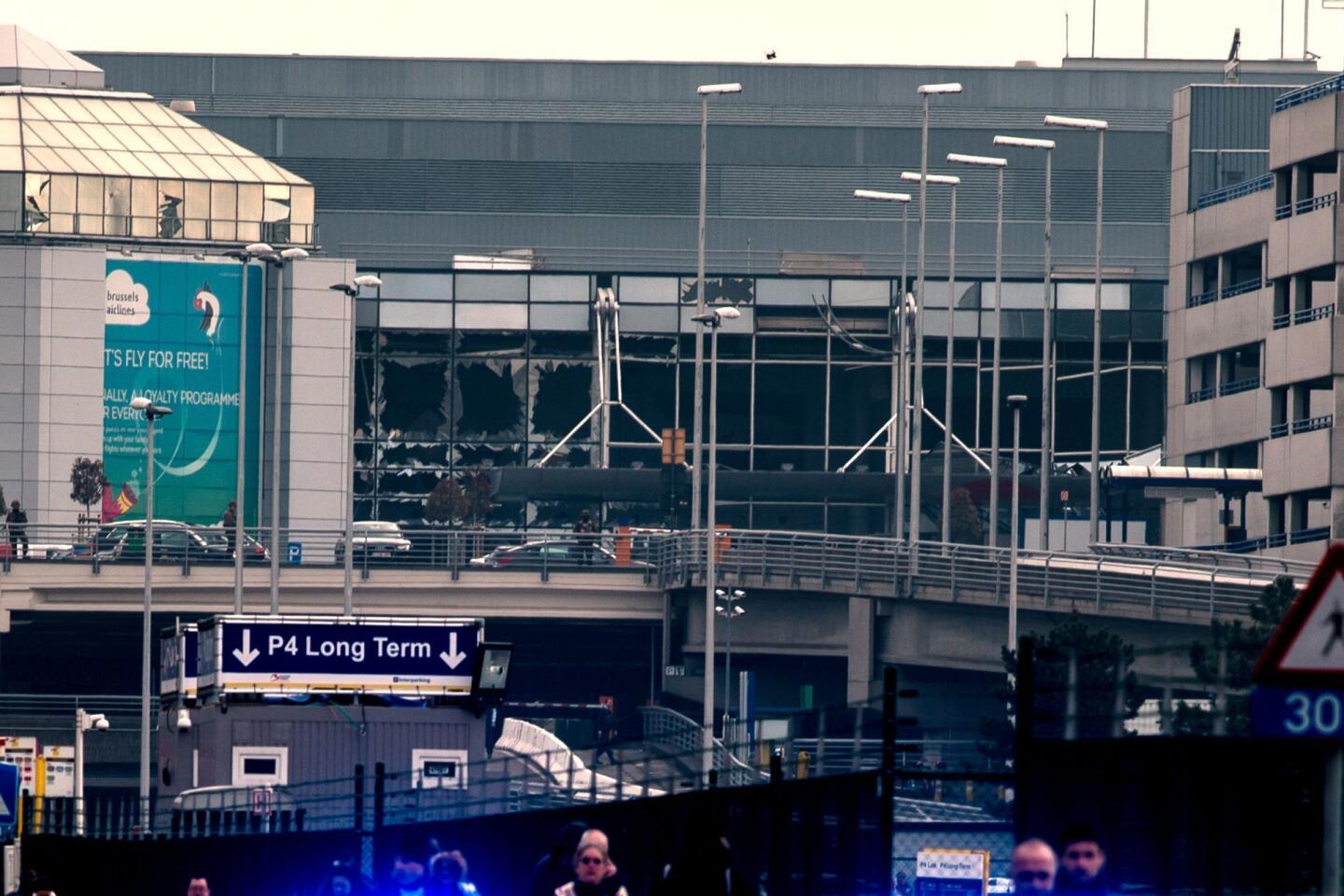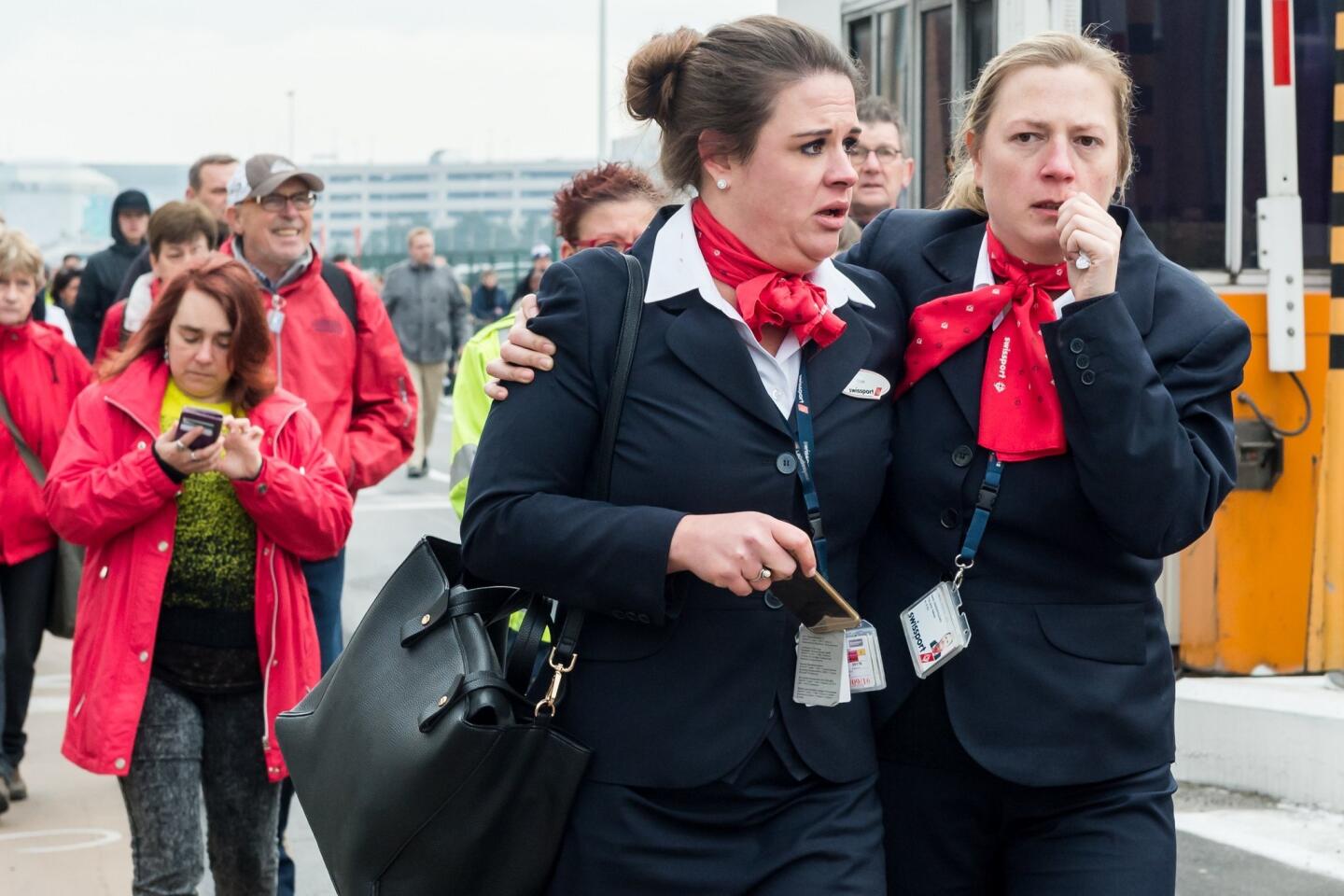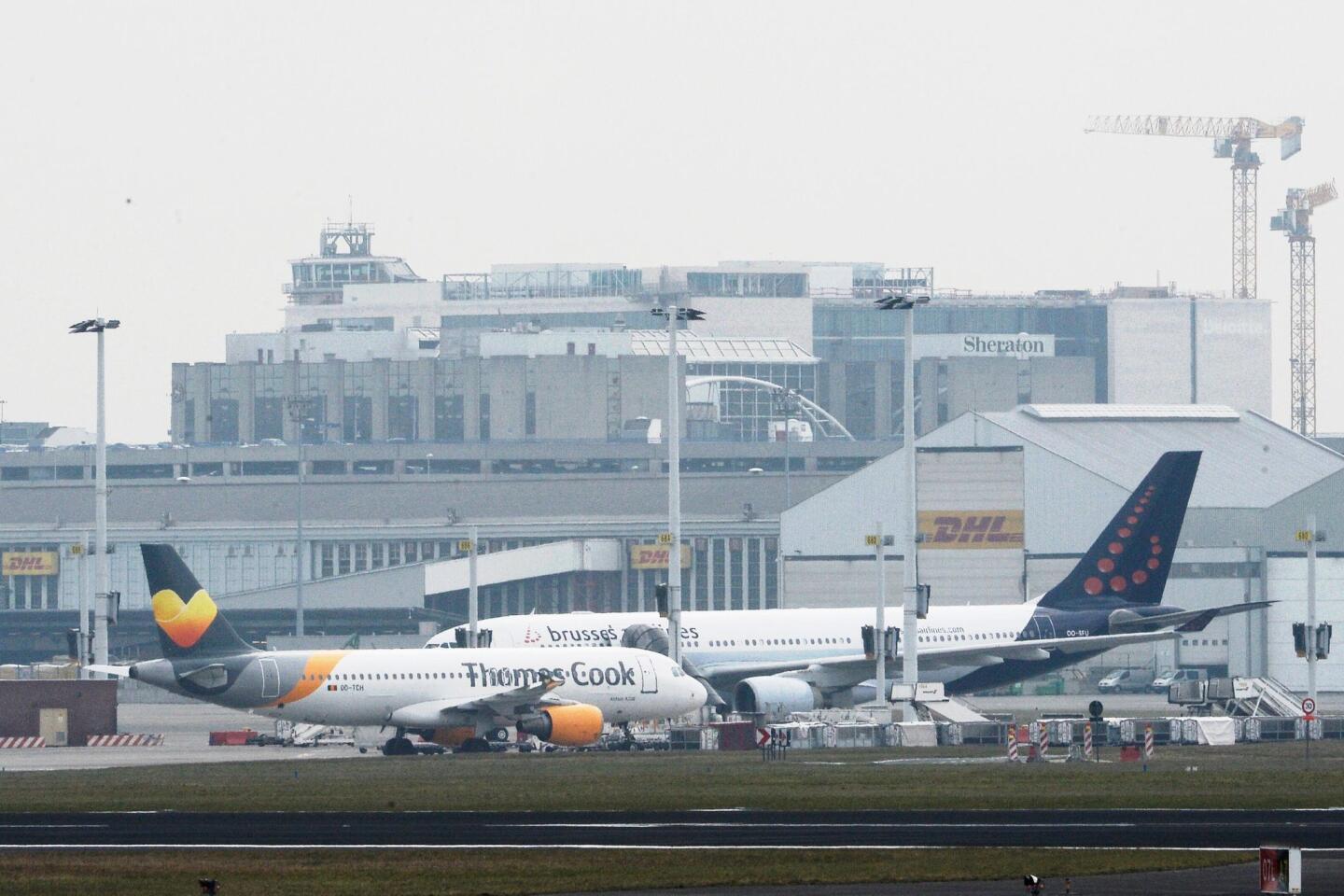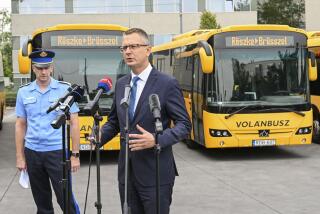6 detained in raids in Brussels; man accused of plotting attack captured in Paris
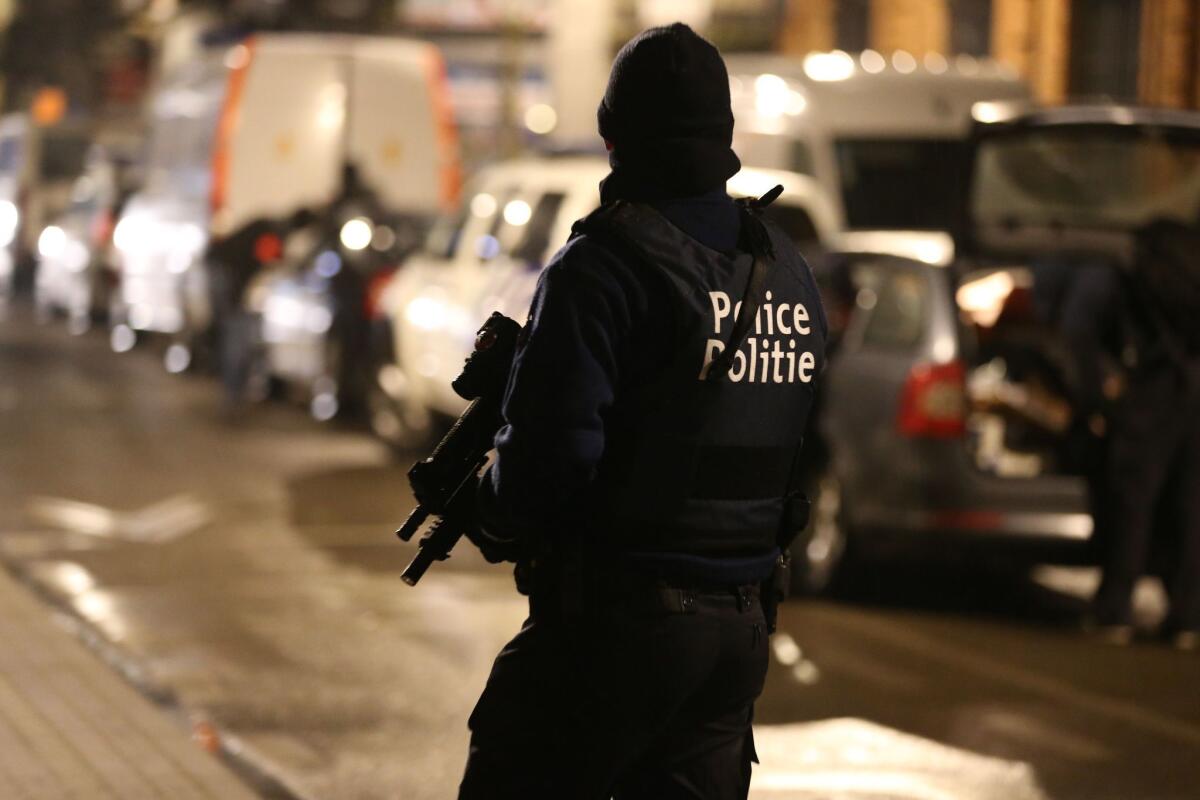
Police officers take part in an operation in Brussels after a deadly terrorist attack in late March.
- Share via
reporting from BRUSSELS — Police have detained six people in nighttime raids in central Brussels in a military-style operation linked to the deadly attacks on the city’s airport and subways.
In a Paris suburb, meanwhile, a man “of French nationality” believed to be plotting an imminent terrorist attack was also detained, though Interior Minister Bernard Cazeneuve said in a statement that there is no tangible link at this stage between this alleged plot and the Brussels or Paris attacks.
Seventy-five people have been taken in for questioning in connection with terrorist activity in France in 2016, he added.
The Thursday night raids in Brussels, where authorities swept through neighborhoods in armored vehicles and helicopters, were focused in the city’s central district where police had earlier found bomb-making material, a cache of explosives and the black flag of Islamic State.
In the gloomy aftermath of the attacks in Belgium, people somberly went about their business in a city that suddenly felt under siege, coping with the worry that potential terrorists could still be on the loose ahead of Europe’s four-day Easter holiday. Soldiers stopped subway passengers, opening bags and patting people down. The airport remained closed and flights in and out of the city were cancelled through Sunday.
Earlier in the day, two Belgian cabinet ministers offered to step down over security failings of one of the identified bombers. Ibrahim El Bakraoui had been deported from Turkey because of terrorism concerns yet had not been monitored by Belgian authorities since he arrived in the country.
Police in Belgium devoted much of the day to searching for two terrorist suspects who they believe escaped from Tuesday’s twin attacks in Brussels that killed 31 people and injured 260, after a deeper analysis of subway surveillance videos, local media reported Thursday.
Two terrorists killed themselves in the blast at Brussels Airport and a third perished with his powerful bomb at a subway station an hour later. Islamic State claimed responsibility for the attack, which further exposed Europe’s security failings and sparked fresh calls for more cooperation among its disparate intelligence services.
Police had already identified a fourth suspect from surveillance videos who had escaped after abandoning his bomb at the airport, and Thursday it emerged that a fifth suspect was captured on closed-circuit TV film as he helped the subway bomber carry a large bag, according to Belgium TV network RTBF and French newspaper Le Monde. Even though the CCTV images of the third airport bomber have not been released to the media, neither RTBV nor Le Monde published the images of the second subway bomber.
Brothers Brahim and Khalid El Bakraoui were publicly identified Wednesday as two of the suicide bombers in attacks. They appear to have been members of a large militant cell with links to November’s attacks in Paris that killed 130. The third suicide bomber is believed to have been a bomb maker suspected of involvement in the Paris attacks.
Authorities in Belgium have not confirmed news reports that the second suicide bomber at the airport was Najim Laachraoui, a suspected bomb maker linked to Salah Abdeslam, the alleged logistics chief of the Paris killings.
Abdeslam, a fugitive for four months and Europe’s most wanted man, was arrested last week in Brussels’ now-notorious Molenbeek district, where many young Belgians of Moroccan descent have become radicalized and traveled to Syria. He was one of 10 men wanted in connection with the Paris attacks. Investigators believe his arrest led the attackers to accelerate their plans, and local media reported that some authorities believe they may have originally wanted to strike during Easter, a Christian holiday.
Abdeslam made a brief appearance in court Thursday and was remanded in custody until April 7.
His lawyer, Sven Mary, had requested the adjournment and told reporters outside the court that Abdeslam was no longer opposed to being extradited to France. “Salah Abdeslam has asked me to inform you that he wishes to leave for France as quickly as possible,” Mary said, adding that he “wants to explain himself.”
With only a handful of the 31 victims identified so far, friends and families of people missing since the blasts have begun hanging up posters in Brussels with pictures of their missing loved ones. One moving sign near the Maelbeek subway station showed an appeal for help in finding a 30-year-old woman named My Atlegrim.
Top European Union security officials were holding an extraordinary meeting amid charges from the United States and Turkey that they are not doing enough to stop terrorism and Islamic State in their countries.
That rift was exacerbated in public Wednesday when Turkey President Recep Tayyip Erdogan told reporters that Ankara had informed Belgian and Dutch authorities in July that one of the Brussels attackers — later identified as Brahim El Bakraoui — had been expelled as a foreign fighter from Turkey. Turkey is the major crossing point for militants headed to Syria.
“Belgium ignored our warning that this person is a foreign fighter,” Erdogan said. “We reported the deportation to the Belgian Embassy in Ankara on July 14, 2015, but he was later set free.”
The mayor of Brussels said Thursday that information was never passed along to her local authorities.
Belgium’s Justice Minister Koen Geens acknowledged El Bakraoui had been deported but he told the local VRT TV network that there was no indication that he was involved in terrorism, and that El Bakraoui was instead only known as a common criminal who had been given a conditional release from prison.
Ahead of the meeting of EU interior ministers in Brussels on Thursday there was a growing awareness that the EU needs tighter security and greater cooperation.
“The intelligence services must cooperate better,” said Germany’s Interior Minister Thomas de Maiziere in an interview with Germany’s N-TV network. “The best way to stop such attacks is exchanging information. There are different mentalities in Europe. People don’t want to share all of their information.”
European Commission President Jean-Claude Juncker defended Belgium.
“Let he who is without sin cast the first stone,” he told the Flemish daily De Standaard. “There was terrorism in Britain and in Germany in the 1970s and 1980. There was terrorism in Spain, in Italy and much more recently in France. People should stop lecturing Belgium.”
MORE ON BRUSSELS:
Attacks also shatter confidence in Europe’s open borders
Brothers who work together in the name of terror. Why so many?
Brussels suicide bombers fit familiar profile; links to Paris terrorist attacks seen
More to Read
Sign up for Essential California
The most important California stories and recommendations in your inbox every morning.
You may occasionally receive promotional content from the Los Angeles Times.
